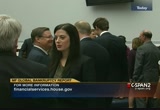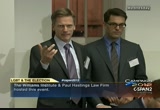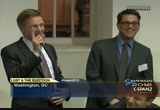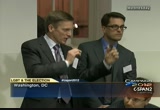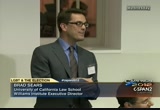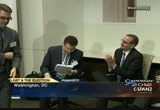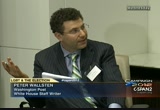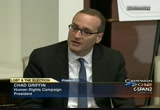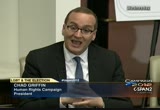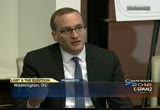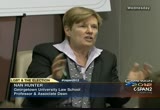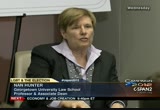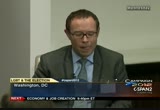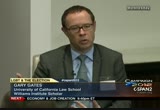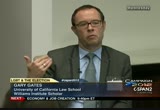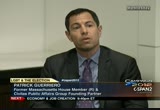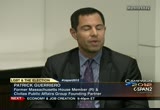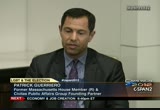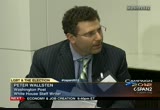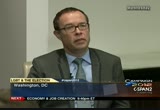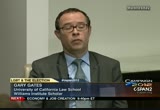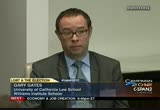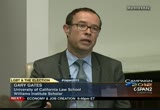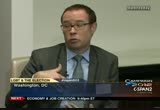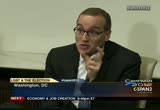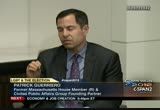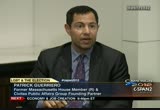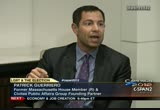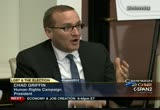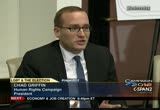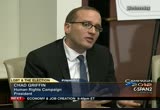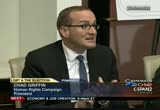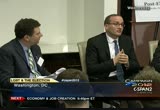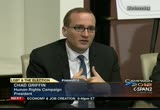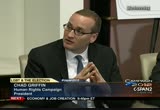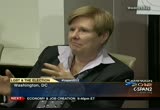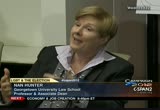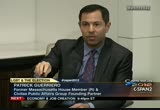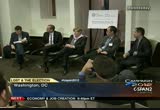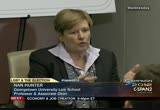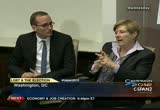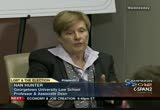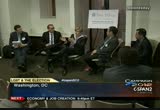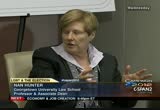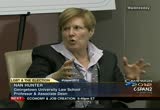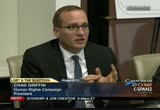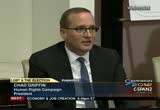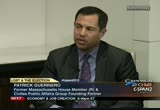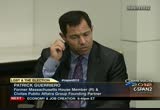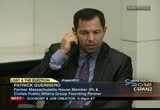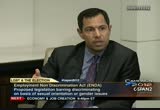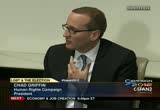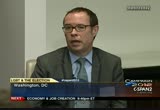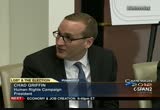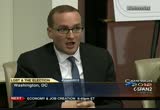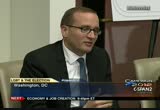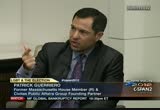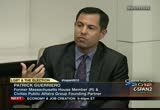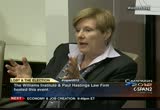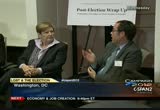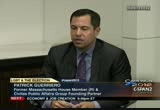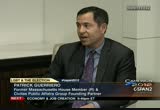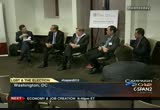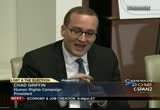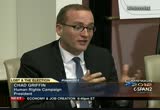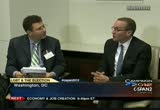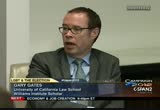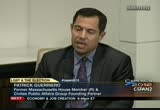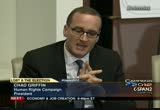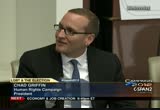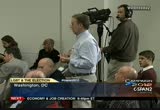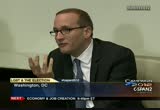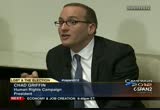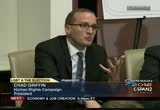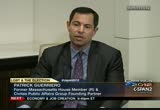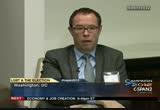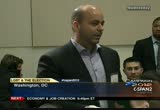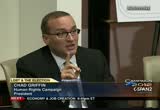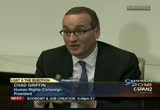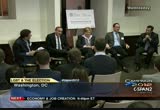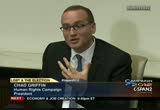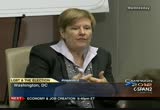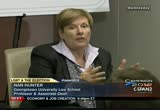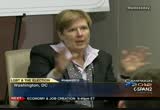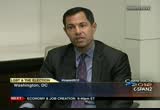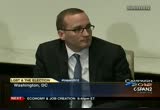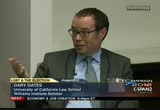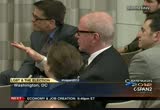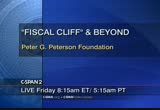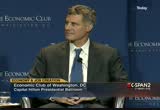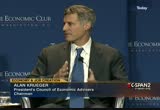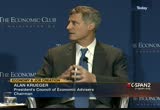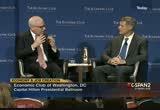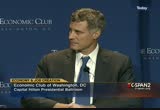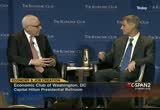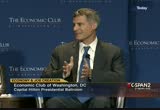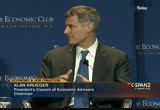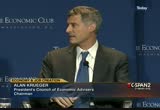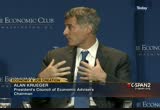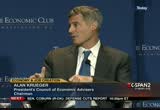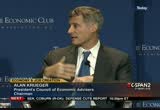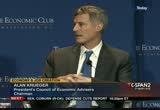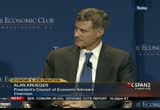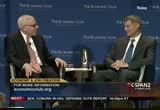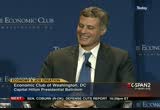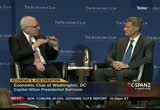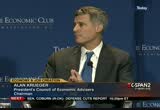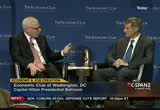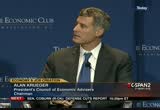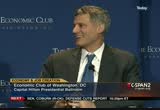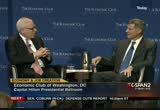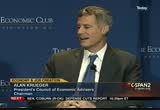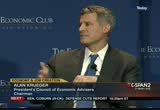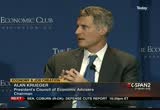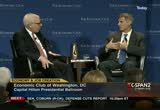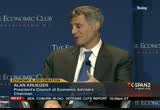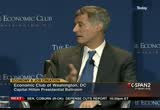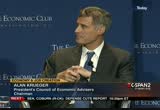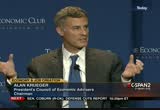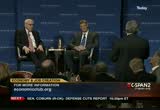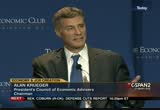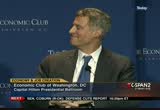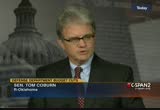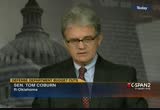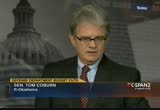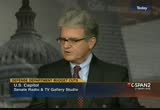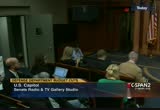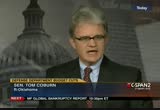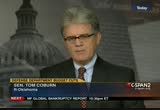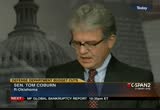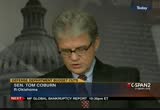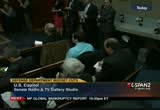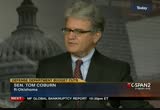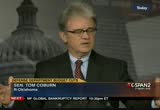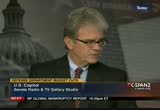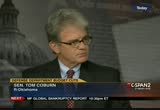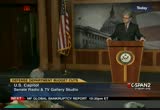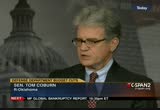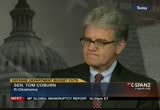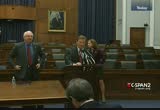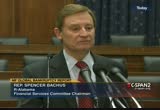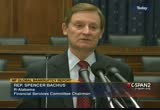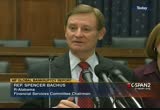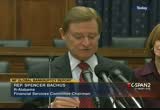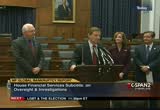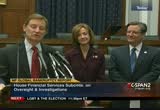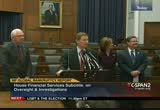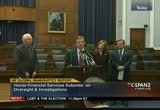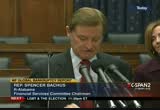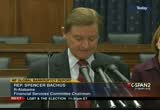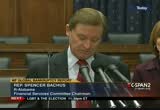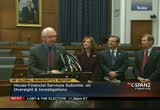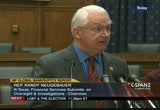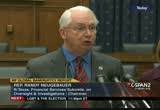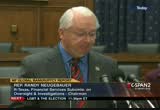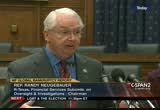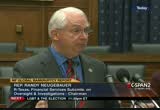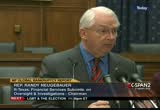tv Tonight From Washington CSPAN November 15, 2012 8:00pm-11:00pm EST
8:00 pm
8:01 pm
presiding. truman never learned anything from fdr or from staff. it was a transition with zero knowledge. that doesn't happen anymore. got a phonecall from the white house, get to the phone right away so he picked up the phone and on the other and they said get to the white house as soon as you can. so he grabbed his hat and dashed out and he had a car of course. they gave him a chauffeur when he was vice president. went to the white house and was taken upstairs to the second floor. he was met by eleanor roosevelt, and he looked up and she said harry, the president is dead. he was in total shock and he said, what can i do for you? and she said, harry, what can we
8:02 pm
do for you? you are in trouble now. >> now a forum on how the election affected the lesbian lesbians gay and transsexual population. this is an hour and a half. >> i have one roll tonight. my job is to welcome you. thanks for coming tonight. several months ago when my good friend said to me would you mind posting the postelection panel? i said sure. proud of having been the first national sponsor of the institute and we have our first real washington event in this very room five years ago. back then, we had 35, maybe 50
8:03 pm
people. are most devout acolyte, maybe people who want to get our mission out to. little did we know many months ago that the electorate would have taken an about-face last week on what seemed to be a relentless march. they keep denying is one aspect of our fundamental civil rights so here we are tonight with a capacity crowd. thank you all for coming out. and here i am introducing my dear friend the chief executive director and to thank him for his contribution to what i hope is that glorious new era for the lgbt community. clearly chuck williams created the williams institute but without brad's vision, passion and talent, he could never have executed it.
8:04 pm
[inaudible] [laughter] my dear friend who is on the council, we have been attending these founders council meetings for years. brad would take that out his organizational chart and say how can we build a think-tank to rival our opponents? how do i do it in a way that has real data and sound legal arguments very effectively? he's so passionate about real data and real legal principles and be found as judge walker told us and chat and i refer to that decision, that if we have real data, we will always counter our foes who are trying to throw bias at the sabrett is passionate about that and that is loud be institute to be so successful in what it's done. he has the talent for tracking leading scholars from all over the country in an incredibly successful way so that over the
8:05 pm
years we have watched brad with his organizational chart and he filled in all the slots and we arrived at where we are today. so i thank you very much for the contribution he has made for us and i will turn it over to him to introduce the panel. >> thanks so much, tom. [applause] i want to start out by thanking tom. we were here at the very beginning like he said in this very room and his step with us along the way and that's really important to work here and around the country. i also want to thank matt and -- for putting together this great panel and doing all the work that gets all of us here in his room for this great commerce station. for the last several elections we have posted these postelection event and it's always a little scary because we invite the speakers and before we know the results, so we never
8:06 pm
quite know where it may lead but everyone is very courageous and you know in 2008 we had a well attended event that was very bittersweet in 2010. no one came. [laughter] so it's nice to have all of you this year. i'm going to introduce the moderator because we have a fantastic moderator with us this year, peter wallsten. he has a very present career in reporting and i am sure you have all read his work at "the wall street journal," back where i live. and l.a. times and i want to mention in 2006 he co-authored a book called one party nation. the republican plan for dominance in the 21st century so we are very glad that that plan isn't working real well, but that peter is with us tonight to moderate the panel.
8:07 pm
[applause] >> thank you. thanks very much. thank you for doing this i realize that i was not always easy to find over the last few weeks while you were planning so i apologize about that but i think this will be an exciting event. i think everybody knows the panel is here but maybe we can look down the line and you could enter duscher selves very quickly and then let's get started. >> i am chad griffin president of the human rights campaign. >> i am subor professor of law at georgetown and a legal scholarship director at the williams institute. >> i am a demographer at the williams. >> patrick guerriero. >> thanks. site that we could start off talking about the election results because that is on everyone's minds and obviously a historic night and a historic election for many reasons that any of everybody in his room already knows, the election of tammy baldwin, marriage in four
8:08 pm
states and the re-election of a president who is locally supported in a historic way on marriage. so i was interested first in maybe going down the panel quickly and each of you saying kind of how you felt that night or the next day. kind of looking at it from 50,000 feet, what it all means for this movement. >> absolutely and once again i want to thank williams for having me here. you all have been at the forefront of this movement for a long time so thank you for having us here. usually when you're talking about an election and you say afterwards, a new direction, a turning point, it's usually spend. the truth is after this election, those are the only word you words you can use to describe what happened on tuesday as it relates to this movement because it really was a clean sweep across the country. i was cautiously optimistic that we were going to win some of
8:09 pm
these and often talked about it. we were one of the four marriage dates but that would have been history making. we really would have taken the talking point away that is used in and day out. i walk into the meeting and talk about how it's morally the right side of the issue to be on an politically it's the right side and i will talk about the 16 polls that have us over 50% in terms of the support for marriage equality. the opposition walked in and said that's all well and good but they have lost every time the public is voted on this of the movement was focused and came together and winning for the first time. but instead we won all four of them. i will also mention tammy which was historic collecting president obama asked her if you go back to win, leading up to and when he and matt announced his support for marriage equality one, yet many people just asking the question what this would mean. is this going to be good come is this going to be bad quick said
8:10 pm
we had the doom and gloom scenario suggesting that other politicians follow the president's lead and they will follow at writing to retirement. one of my favorites in which became a pet project of mine and many of you probably got my fundraising for this little race in iowa. just as wiggins was on the ballot for retention in iowa. the three judges on the iowa supreme court that were up in 2008, the national organization for marriage spent $1 million to keep them in and they did so by 10 to 15 points. just as wiggins was the fourth judge on the ballot this november, they spent hundreds of thousands of dollars and they campaigned across the state and head bus trips across the state and we went in with some lawyers that were there in the state to partner in the campaign and we saved just as wiggins. we send a message to the judiciary that just because you were in the right side of an issue does not mean you're going to be recalled.
8:11 pm
that is what they are constantly trying to do, and it was a clean sweep across the country. i'm very proud of all the work, and it really was a coming together and working together to achieve these massive victories. >> i would agree with basically what chadha said that i would add to it is that i have this blog and what i blogged about in terms of the marriage results was, my headline was this is what a sticking point looks like and it was interesting to me that in all four of these states, the percentage supporting gay marriage was 52 or 53% which is exactly what the other side god in the prop 84 years ago and so it felt to me like in addition to all the polls you read and the
8:12 pm
nationwide support, 46% and 51%, the feels to me that these four states in part because they really did come from around the country are the most part, at least from many parts of the country, sort of set this electoral support that is achievable by our side of 52% and i think that's really you know, an important and sort of magnificent kind of victory. i think the other piece of that is that on this issue, and i think this issue will come to be seen as representative more broadly of american politics, where we are seeing a distinct separation between the regions that are more tolerant and more supportive, more progressive and the regions that are less so.
8:13 pm
the pew trusts came out with a poll, you know sort of tracking region by region with the polls are in terms of this specific issue, support for same-sex marriage. so in the same way that we are accustomed to the red and blue and all that sort of stuff, and this is not to say that there aren't a lot of purple states where there is plenty of support, i think the marriage has coming to be increased if we -- increasingly this one off social issue or cultural issue but an issue that is really telling us something, telling the country something about the direction the country is moving in and about the political divisions and where they sit. >> i am the data geek on the panel so i have to say i was in the trust category so the nate
8:14 pm
silver blog. i went into those elections, and i had continuously and my friends got to this i had never believed the presidential election was going to be that as. i never believed that obama quite frankly that obama was going to lose so that wasn't actually a surprise to me and i was very confident going into it. but historically on the data side, what chad was talking about on the various marriage foes is that polling had to show up not just majority. polling always have to show up to even think that we had a shot at voting and so i went into this very nervous about those votes and so obviously i was pleasantly surprised but i have to admit i had a personal stake in the so i'm one of these people, i got married in canada
8:15 pm
in 2004. i crossed the border and i wasn't married. i lived in d.c. for a while, moved to california. i was married for a while in california and then i moved to washington and i wasn't married again, and now i'm about to get married again. [laughter] so, thank you. hopefully it's the same guy. don't forget that. [laughter] >> you don't get gifts every time he there. that's problem. so i did have this very, i certainly had a personal stake in that so i was very pleasantly surprised him outside and i do think also, i want to look at this deeper but it feels to me like this time the disconnect between the power of voting and the actual voting wasn't as big as it was in the past which just the extent that people were saying different things, if that
8:16 pm
ever was true, it feels like in this race are polling suggested that was kind of the margin and we won by the margins that were fairly close to the polling and i think if that's true that's very good news for us as we go forward with this kind of thinking. i think there was a tendency to feel that we had to really get very high numbers and so that was good news. >> that was let -- i was less confident about the racing gary was. the staff certainly said one thing and i live in boston near the romney headquarters of my gut was sensing a lot of confidence coming out of that building. i did have a concession speech prepared for this event as we thought through what this conversation would be like depending on the scenario but i had a few quick questions on election night. the first was remembering exactly what it felt like in
8:17 pm
2043 had a dozen constitutional amendments passed in the state all across the country. you had karl rove celebrated as the architect who had just built a new kind of republican electoral majority that would have laid the attraction for a decade or two and you had a president who was reelected not because of within the toolkit was the wedge issue lgbt families across the country. a dark moment, kind of the fetal movement for the lgbt movement and what i really sensed on election night this year was how proud i am about our resilience. we picked ourselves up and we decided to fight ends day and decided to start talking to republicans. we decided to demand more from our great democratic friends. a lot of movements could have stayed down and been victims for the next decade like some people predicted so there was a sense of proud and our resilience and
8:18 pm
our strength and our character to bounce back from that. i think the second reflection i had is that on election night in 2008 i spent it at campaign headquarters for the prop 8 campaign and watched young boys and girls cry about an election result as they were watching the president give an inspiring and motivational victory. the contrast that night, the disconnect from the nations embrace of the new and visionary president with young people seeing themselves on the ballot in having their own neighbors reject them. i remember the mix of emotion that night for a lot of us in this room and certainly that generation of young people. kind of the joy associated with election night was thinking about those young people who in four states all that saw that they were embraced while the country across-the-board didn't put up with the wedge issue of
8:19 pm
lgbt writes and then the bad news is i woke up the next morning both with a hangover and with a healthy reminder that probably has some big wins and four blue states and the ballot and we elected the president, huge challenges faces. people still get fired for being lgbt. we still have state health care exchanges being designed in many states that at this point don't have all the things we need to make sure our families are protected and cared for by the federal government. there are still great challenges so let's enjoy this moment, celebrated but realized there is tons of work ahead in our opponents are trying to figure out what they did wrong. they will correct themselves so we have to be ready for a big fight. >> you can asa set the table for the conversation so let's drill down on a few things you have talked about. gary, this continues in the role as the data geek. can you talk about the exit polls and what to take away from the lgbt vote and the influences
8:20 pm
they may or may not have? >> one of the great things about this election is in the past basically the only thing we have known about the lgbt vote was the exit polls which usually told us what percentage that they were lgbt and how they voted. this year, gallup added an lgbt question to their daily tracking survey in june and collected data on voter preferences and continues to. so, for me, one of the fun things that has happened for the lgbt movement and i actually don't think it's -- this is serious is this question is now a permanent question on the gallup daily tracking survey so every night in america 1000 people are asked if they are lesbian, gay or bisexual. see what percentage? >> about 3.5% said yes and the
8:21 pm
exit polling said that 5% of the electorate said yes and so what that allows us to do though is so we had data, have data from june, collected from june through september and for the first time we did and just look at the national vote that we can start to look at regional and state level votes. what i did was a little analysis, not just how the lgbt vote affected the national election and certainly from the national popular vote, it turns out that they lgbt support for obama is about the size of his victory over romney. so you can credibly make the argument that with the popular vote, the lgbt vote, baby huge difference but of course that is not how you win the presidency in the united states. the issue is what it did in the state elections and what i found
8:22 pm
was really interesting, the same scenario for the popular vote in the national vote happened for ohio and florida so the lgbt support for obama is bigger in both ohio and florida bandit is winning margin so you can credibly argue that vote mattered a lot and if you think about an election where obama loses ohio and florida, you start to think about a very different election. and then i looked at polls and said what if romney and obama had more -- the lgbt vote was 76 obama, 20 to two romney and quite frankly it has been about that -- it's been roughly 3-1. obama, that's the highest it's been quite frankly it's been high all through. but what if they split more or less evenly over romney got a little bit more? if romney had 151% of the lgbt vote he would have won ohio,
8:23 pm
florida and virginia. he would have been within four electoral votes of the presidency. so, in florida all he had to do was win a little over a third of the lgbt vote to win those states. so, while i don't think that -- in the way that we are not talking about immigration and things that republicans have to rethink their strategy on, i don't think it's quite that level of impact but a little bit of movement in the lgbt vote in key states and this election suggests it would have been a very different picture for the national election, and so while i'm not willing to say the lgbt vote won the election for obama, what i strongly think is it made a very important difference in the tenor of the election and the majority of the electoral
8:24 pm
college and definitely like i said a fairly modest movement in that vote in key states. >> are if any of you familiar with what kind of targeting the obama campaign did to lgbt voters in the states? >> i don't know. we have all heard that their research shows the votes the same thing we have seen in other national polling places. if you vote lgbt and straight marriage equality is a top motivator and perhaps you can add to that but i think it's something that they saw. there was certainly no price to be paid on this issue and there's a significant case to be made that there was increased excitement amongst the youth vote because of that position in the contrast of that position with the opana. >> the other issues if you look at the lgbt voters and the gallup data, they are disproportionately female, younger and on white.
8:25 pm
and those are all -- so i looked at the elections and i said would have given those characteristics they voted like the general public did given that they are characteristics and if that happens lgbt vote should be about 56-44, for obama and romney which suggested there something about the lgbt thing that gives obama a 21-point split. i am not saying that is all lgbt, but i think the data suggests that it matters. we are talking percentages but 5% which is what they asked, lbg which is over 6 million voters, 6 million voters. that is a significant portion and they have become increasingly difficult for any party to ignore those 6 million
8:26 pm
votes so when you start looking at elections and start imagining debates particularly within the republican party in the platform they currently have, you can imagine a more serious political discussion and a desire to start going after and competing for that. a lot would have to change in the party to be able to do that. >> the other thing is the elections are now showing, like you have seen the thing that the republicans have lost the popular vote in the presidential election in the last five or six and it does seem to be for the next two election cycles for them to when they wind up having to win if they are going to want it all at all they will wind up winning by a narrow margin. that is where the lgbt vote becomes important. wanted to close race, if it's 5% of the electorate obviously the race has to be within 5% or even a little less than that to make that vote matter and for
8:27 pm
republicans if their margin of victory winds up in the short short-term being fairly small, to your point, that could be important. >> quickly to counter what the thinking was, george will addicted just prior to the election that in fact in minnesota they have this ballot measure on marriage that would bring out so many social conservatives that it would tip the state two romney. >> quite the opposite. >> quite the opposite, right so it's an entirely new calculation significant chunks of the country. >> gary did you happen to look at the exit polls from the other direction in terms of non-lgbt voters whether tammy baldwin -- >> yeah, so the exit polling for lgbt stuff at state level does not help me much because you only get nationals i wanted to look at the gallup data and at this point i've only looked at the gallup data in the kind
8:28 pm
of -- the ones where credit mattered which is ohio, florida, virginia and colorado. >> the only thing i would add to that, i had the privilege of helping service general consultant for the tammy baldwin running with emily's list and the hrc and i know my business college bill smith is talked talked about it. lgbt issues both in -- -- in other states are significant to look at the lgbt vote, the 6 million it's about the message the president sent by being bold and what that said to independent voters, women voters and other progressive voters and i think we need to -- part of our job as we think through the challenge is moving forward is how does the conversation -- make sure we don't get them siloed off. there are huge issues facing the country from the fiscal cliff to senior citizens to people who really care about immigration
8:29 pm
policy to the real challenges and the communities of color and violence in our streets. i think we need to figure out a way where we take some maps that show why we are so important and attach that to some great challenges and make sure we are not in the movement only thinking about ourselves over the next 18 months. there is such a joy that i'm afraid some of our friends and progressive partners who have huge challenges can see is celebrating a little bit too much and what we want is the challenge for the movement in the day that. >> following up on that because i have written a lot about president obama and how he deals with being an african-american candidate. how did tammy baldwin -- did it affect her campaign strategy at all? >> it was amazing to watch and who would have thought? to his credit i must say while there are many of us who had disagreements with where tommy
8:30 pm
thompson ended up on lgbt issues in this election, the fact that it was an endearing serious way high profile senate race is a credit to tammy who is an amazing person and public servant and are in the right on her record but also the other side. it was tough politics. it was now is pretty but this was always in the game and i think when you look at the remarkable victories and a victory fund and hrc and other organizations where we saw exciting new lists of congressional numbers, we are in a new day where we can run candidates for u.s. senate where the battle is over who is dongle for the middle-class, not about their personal lives. this is the first time it really cemented itself. >> is that from winning the award you think? >> i think it was some level of decency. we did not see any evidence of
8:31 pm
that in this cycle. it's still going going to come back in certain places but that race in particular showed some unlike tammy who has done her work and work your tail off for years and years was -- it means we can elect u.s. senators and eventually u.s. presidents and that is not the primary issue of the campaign. >> can you talk about the strategy and you guys have all discussed this but there has been a long winning streak of the marriage referendum. how did you turn that around? >> look, patrick and i were in that same hotel in san francisco on election night only four years ago where there was two ballrooms, one for prop 8 and one for obama. if you look at all that has happened in that movement in just those four years, one, these campaigns and all the organizations have gotten very sophisticated. they came at us with a sort of sugarcoated hate campaign that used to come out of florida.
8:32 pm
it was very direct and it was very overt and now they have just sugarcoated it. all the atsa came out in those days of prop 8 for attempting to divert attention from what was on the ballot and put a focus on schools. there was this infamous ad of the a very young woman running and, in elementary school students saying mommy at school today a prince can marry a prince and a princess can marry a princess so that was a surprise on the prop 8 campaign and perhaps that campaign was not well per ford -- repaired we learned our lesson. all four of those campaigns with brilliant ground troops were ready so the moment they went up with that, our site was up and responding to that so we responded to their single greatest argument they use day in and day out and they put millions of dollars behind. we were ready for it and respond
8:33 pm
it. i think the electorate in those four years has simply moved significantly towards their issues and they don't buy that. greece on some of the polling in a number of states particularly maine when hearing that argument voters just don't buy it that much anymore. it would also add to that you saw coalitions unlikely of ever seen in our movement and these weren't just coalitions standing up at press conference. these were partnerships and organizations like the naacp in particular and in maryland or another state partnerships with religious institutions. our opposition -- if you look across-the-board the ones that put three of those on the ballots. we only played eight on the ballot in the forest in minnesota maryland and in washington. presumably they felt they could win and they spent the time energy and money to put on the ballot that because the coalition when they would come out with a religious argument with you saw were fair-minded religious leaders standing up
8:34 pm
countering what they were saying and that's something we haven't seen as aggressively in the past. they also are simply losing support. i was on a panel today and this was much more exciting with brian browner once the national organization for marriage and he is desperately spinning and he talks about the state that he talks about how they were outspent this time. they had seen their support shrank. they're not going to go away and they will learn their lessons and i agree with patrick. i think they could come back in a very forceful way that they have seen their support shrank. they have seen their grassroots support strank strength in their donor base shrink. the mormon church is a player we did not see in these campaigns. they were the dominant player in prop 8. you also saw a lot of individual donors on that side that were not there this time wears on the pro-equality side you saw fair-minded people across-the-board standing up in campaigning for these initiatives on our side and also
8:35 pm
writing big checks. straight allies. the single largest individual personal contribution, jeff and his wife contributed $2.5 million in the state of washington. so we really saw that across-the-board with lgbt people standing up like they have never stood before but also arm in arm with our allies. >> but the blue state argument i understand there is a lot of spin there but it's true that it happened in a blue state. >> maine has two republican senators and two republican -- and a republican governor. i wouldn't call it a less liberal state. california also won in prop 8 so it is a noticeable and sizable difference. there were many who thought maryland would be a challenge because we didn't have the same amount of time it's a very diverse day. our opposition continually, look at their states throughout the campaign ended without and that without they had maryland
8:36 pm
locked. washington state in maryland, incredibly strong catholic states and they thought they had up there because it was a catholic state but will we founded our polling, there were enough catholics to support marriage equality. all the advantages that they thought they had they no longer have. >> are you now empowered to try to move into the more conservative states? >> i think our movement has to be smart strategically the right now we have the other side on the defensive for the first time. we have been winning in state legislatures across the state and state and federal courts across the country. the playing field that they still have the advantage on were ballot measures. putting up the rights of the minority to a public vote of the people in an arena where truth and facts really matter, in a political campaign and they were winning so for the first time on this one playing field where they have the advantage, we are now on the offensive.
8:37 pm
so when we have a scenario like that, responsibility in the movement is to look at our opportunities, not to slow down, doubled down and head into our next victory where possible and i'm optimistic about the opportunities across-the-board from the east coast to the west and a number of things in between. we have some real opportunities at the state legislative level and at the end of the day this is going to be one in our courts just as it has been in our past. but we have to fight all in all of these fronts and get victories where we can. >> where's the next eight? >> anywhere from rhode island to delaware all the way to hawaii and a number places in between them and by the way they are not just possibilities on the marriage front. there they are also great opportunities as it relates to the state-wide nondiscrimination measures and the state-wide bullying initiatives and all of those are important. just because a state is not
8:38 pm
going to marriage up for a vote doesn't mean these issues are important but we are coming together now looking at those opportunities and we will run aggressively. >> i also wonder whether they are second-guessing the three states because in the past they did in 2004, they ran this halo. at turned out it time -- this time the others died struggled with getting resources across all four of the states in ways that hadn't happened in the past answered lame in a money sense, it was in favor of lgbt rights and most of the states i believe so i wonder whether at this point now now they're debating whether that was a very good strategy to try to go after all of those all at one time because those races that got way closer than they had been. >> if they are on the defensive, to be realistic they are on the
8:39 pm
defensive and they have god like almost 40 states have laws against marriage and we are on the offense in terms of knocking off some of those but they did run -- in 2004 so they have got the amendments in states where their natural strength is and does will be the toughest states to dislodge. what happened this time was that it seems to me that our side says it's a winning state that you know, or maybe not the bluest in the country but they seem sort of in the middle somehow politically. and there was a high degree of regional variation. i think that was part of the message. i think of the election had just been massachusetts and connecticut and new hampshire and those three states had one, it would have been a muscle --
8:40 pm
much less powerful message. having said that there are still a lot of things whereas chad points out, there are still a lot of states where there's by antidiscrimination law and that is an incredibly important issue to press forward on. >> patrick any thoughts on future opportunities? >> i am the most intrigued by states where people don't expect us to move forward in example being colorado where republican leaders still had bipartisan support. he is no longer the leader and there will be a vote on civil unions in colorado over the course of the next legislative session. another place that is less to talk about that in iowa, we have the threat of democrats losing control of the state senate. that didn't happen as well as on the judges level. that -- we would have been in literally ground zero moment today and i in iowa trying to defend pastors
8:41 pm
a constitutional amendment had we not held onto those states in the senate. senate. in new hampshire we have thankfully of woman democratic governor get elected. we would have been fighting on the ground in new hampshire today so right underneath the surface of emotional powerful very big wins there were these other really important wins that tee up the delaware's the colorado's, the hawaii's in the minnesota's where we not only won the fight that we flip the legislature and now we have the majority so there are half a dozen states that are strategic and smart and well timed and don't overreach will figure out the best time to make sure we are working towards full equality. at the same time we are dealing with a supreme court that could be taking up one or two cases that will really be helped by winning, doing the hard work of
8:42 pm
winning. >> funny you mentioned the supreme court. let's talk about that and maybe man could you walk us through what may be coming up this term and with the issues are? >> sure. there are three cases or clusters of cases that are pending before the court, waiting to see if the supreme court is going to grant review and hear arguments and decide in this then this term. the cluster consists of the doma challenge. i think that is -- one of those cases at least as the one that the court is most likely to grant review and because all these chords have said the federal statute to be unconstitutional in the federal court has got to resolve that. it doesn't do anything as a supreme court so i think there's a question about which case it will be.
8:43 pm
the united states which of course switched its petition during the obama administration from defending doma to arguing that it's unconstitutional has recommended to the court that it grants cert in the winter case. there are two cases. a lot of petitions have been filed. there only two cases in which there has been a court of appeals opinion. the windsor case in the second circuit and the gill case from the first circuit. i think the lindsay cases the more likely one in part because the justice department has recommended that. so i really think that case is going to be -- that case is going to be heard. i would be extremely surprised if the supreme court does not grant review in that case and we do not get a decision on the constitutionality of doma. the other cases, the famous case which chad knows a little bit about is the prop 8 case from california. that is where, from a ninth
8:44 pm
circuit appeals decision, which by a 2-1 vote, struck down prop 8 from the supreme court, the impact will be to affirm the ninth circuit opinion and will be unconstitutional. i think it's a big question with what the court is going to do. there are demons made to the court that you don't have to review this case. it's about california. just let it be. at the ninth circuit decision stay in place and you don't have to, you don't have to take the case and roll the dice and try to reach a decision for all 50 states. i have no idea what the court is going to do in that case. and there is also the possibility that, at the end of november when the court is considering this, they would
8:45 pm
grant review in case, i think a doma case, and just hold the other case until the end of the term. i think that is certainly a strong possibility. the third case is a case from arizona in which again, from the ninth circuit a decision from the ninth circuit, ruling that arizona's law, taking away partner benefits for same-sex partners was unconstitutional so again if the court denied cert and there are there really is a split in the circuits. there are a lot of reasons to say you can just let that sleeping dog lie, then that lower court opinion which take effect and that would be for gay rights advocates that would be a very good outcome. but the court actually come
8:46 pm
until yesterday i think, has scheduled a decision on whether to taket case at its conference next tuesday, the 20th. it is bumped back to november 30, a friday, so somebody is either still trying to make up his or her mind or trying to persuade somebody else to make up his or her mind because the cases are all fully -- so we are kind of all on pins and needles at this point. >> man and chad also can you -- this is it. very conservative supreme court. what is your anxiety that these issues are coming to this court is supposed to accord may be down the road that is a little more friendly? >> well, i mean all the cases are different and yet there is an overarching theme. the overarching theme is citizen
8:47 pm
equal protection -- in each of the cases so the court has to decide any of these cases unless it stands less than a prop 8 case or something, but the big question there, the big sort of blockbuster potential is for the court to articulate a new equal protection to perhaps either give heightened scrutiny to sexual orientation classifications or to frankly admit that they had been doing and saying look we are not just applying to low-level height differential rate rational basis standard. we are looking at classification with some strategy because it in fact is being used in a way that is saturated with animus and bias and it has no relationship to the legitimacy of the programs that we are talking about. so that is kind of the really
8:48 pm
big question. will they reach that point in whatever case they take? >> which one of these conservatives or two or maybe more would go that direction? >> well, in terms of trying to game it out, that is always a little -- [laughter] don't hold me to any of this. >> that is why we are filming it. >> yeah, right. that is why i'm saying it. i think the strongest likelihood for a good decision in terms of striking down a discriminatory classification is in the doma case, or whichever doma case they take. for all kinds of reasons. it's an extraordinary thing that the federal government, while it except for state government definition of marriage for every
8:49 pm
other kind of marriage including common law marriages or other marriages, there are some differences between the states. this is the one category that gets singled out for differential treatment so that just sets it up i think for justice kennedy who has a romer philosophy, so that is my most hopeful expectation. >> chad, turning around but could you, from a strategic standpoint, is there are risk in bringing these issues to this court? >> i think anytime one files a lawsuit there is always a risk that you can either win or you can lose. i absolutely believe that we are on the right side of this issue. we have the actual constitution in our favor. essays on the trial with 12 days of brilliance that chief judge walker oversaw. we are not opposition.
8:50 pm
is forced into a court of law, where truth and fact are the only things that matter, unlike a political campaign, and where there's a truth serum ended when a so-called expert witnesses under oath, truth or should i say equality tend to win the day. you have seen seen this across-the-board by the way and if you look at all of these victories, not just a prop 8 victory but the doma victories, many of these are by judges that were not perceived to be less than liberal judges. many of them were appointed by a republican and some of them were appointed by democrats, but i fundamentally believe that at the believe that at the end of the day it's so clear where the country is headed on this issue as we have on so many other civil rights issues. in 1967 when the supreme court ruled in loving v. -- that was a supreme court decision and if you look at legacies, one can go the route of plessy v. ferguson or
8:51 pm
brown v. board and i get to say these things is as a nonlawyer although having spent to the last few years of my life with smart lawyers, that i try to learn from and nana certainly the expert on this panel for the justices are likely to go but i'm incredibly optimistic in the case and i assume the doma cases wouldn't be filed either by the brilliant lawyers and the legal organizations so i'm optimistic. i think it's a mistake to write off anything. >> let's could move to capitol hill and just thinking, we talked earlier about tammy baldwin. patrick, what do you think her presence in the senate will mean in the -- and there were other lawmakers, lgbt lawmakers elected the cycle. is that going to change the dynamic on the hill at all? >> sure and it's a lot to put on her shoulders to change the constitution of the u.s. senate. if anyone is capable of that, tammy is in the things we have learned in the state
8:52 pm
legislatures around the country is even in some of the toughest states with the toughest debates, when there were lgbt americans in the chamber at the desk, the language, the tone of the debate often changed almost automatically when they were there. you are suddenly talking about your colleague who you were trying to lower your tax bill or your local bill and we found in our experience in this room is the moment tammy baldwin walks through that's senate and and a senator that wants to get to the floor to debate will think twice about what they say about us when they know tammy will stand up at her desk. almost as important though i think we have a bold group has democratic sig -- senators who themselves look at this issue completely differently. when you connect lgbt leaders with bold allies that we have now, just think the tone of the
8:53 pm
debate happened. i do think though considering redistricting, and how tough it will be for democrats to take over the house of representatives for some time, not impossible but really tough, we have to be really careful about our success and understand that to get to real congressional action on something super bid is going to require work among republicans where a movement that hasn't always done that well in the midst of such big wins, i can see us veering into a place where our lexicon gets arrogant and we start labeling people who want 100% with us as their enemy and i don't think that is the case. i think of the move that we need to do soul-searching in the next few months while we try to get the same things done. how do we start talking about the real serious sustainable center-right work that we need to do so that we are prepared for a sustainable electoral majority but also it's one thing
8:54 pm
and it would be great to win the big court cases in god i hope it happens. even if we did win, bring the public with us, we have learned from a lot of social movements that in big court decisions is not just the big decisions that matter but he have to do the hard work in tough places with people who are not with us so we are not fighting this battle for years from now. in washington i think it's going to be tough to pass in a big pill. i do think under chad leadership and certainly his vision for how we talk about these issues among some nontraditional allies, there's a chance of a conversation with republicans about things like nondiscrimination. >> who were the target publicans? who is out there to be talking to? >> this sounds crazy but i would not preclude anyone at this stage. i think there'll be looking at what this issue means that i've seen data that shocked me. i think when they look at where history is moving in and the public is moving, if we are
8:55 pm
talking about issues that are just marriage and talking about nondiscrimination there is not a single office i can think of that would be willing to -- >> i agree with that i think your two examples to look at. ted olsen is someone i never thought i would meet her quite frankly ever made in my entire life. he is the one that has become a friend and confidant in the movement by his position on this issue and that came about by a willingness of a number of folks to go have a conversation with him. the other example i will use is daven -- david blank and forth. david blankenhorn was the witness that our opposition used, the key witness throughout their case. only a few months ago david blankenhorn while the case is still being litigated came out and reversed his position on marriage. i think he was brave to do so.
8:56 pm
he did a lot of soul soul-searching i think after that trial and quite frankly went through an evolution of his own. like lost americans by the way, sometimes at work it's laughed at when he gets used. evolution is quite frankly what most lgbt people went through when they came out of the closet gets what her parents go through when they accepted and it's also what those on the other side go through. i completely agree. the lesson is you don't write off anyone and be willing to have that conversation because as we all know, all you have to do is have somebody close to you whether a church family, colleague at work, neighbor next door, someone in your church to be open to you about being lgbt and that burton -- person comes with us. >> another piece i wanted to point out too is we have elected the first open bisexual person and demographically the lgbt splitist half lg and half b but
8:57 pm
i think it's exit good thing for the movement to have an openly bisexual legislator on the federal level and hopefully we will get the t in there soon enough. [inaudible] >> i know you were going to ask that, but that is -- that is good within the lgbt movement to have that very openly bisexual component. >> you need to have a plan? i'm not hearing any names of republican lawmakers that you are saying would be committed. who we are going to go to first and what kind of strategy area going to have for them? >> i will speak weekly about them and until we get into this next congress, we may have some -- and the lame-duck but the rollup or real opportunity will come after that. we have to be realistic that the current house leadership is still the same and it's still
8:58 pm
unwilling to move or has been in in the past unwilling. my hope is that the message that came out of these elections will in fact open up the door to have those conversations and there have been people who have been helping to open those doors. if you look at what tim mehlman has done over these last few years and opening doors and advocating a country beating money not only to these campaigns but having a conversation with those that he is close to. paul singer, one of the big donors to the republican party, the finance chair from that romney one of the single greatest philanthropist on the issue of equality in marriage and equality specifically. ted olsen, we could go on and on but the more we have leaders like that to force that conversation with those elected officials come thither doors wanting meetings, money and fund-raisers that question gets asked in that dialogue happens and i think that helps us further open those doors. we have to see what those opportunities are. we have somebody been leaders
8:59 pm
for a long time. senator susan collins has been tremendous and without her support we wouldn't have the victories that we have had that my hope is that we will have a lot more that follow her lead. >> what about the democrats? reid has -- are you going to put pressure on him to deliver on that? >> look, it is a crime that we still don't have workplace protection in this country. the vast majority of americans support, the vast majority of republicans supported and the vast majority of conservative republicans supported. it is outrageous that we have had some elected officials who have not allowed this to go forward. now corporations are ahead of congress. many companies have moved forward to have inclusive practices and a number of states of move forward but still in more than half the states in this country you can be fired simply for being lgbt. so it's outrageous and i think
9:00 pm
it's like legislating the golden rule in congress. those that are unwilling to move forward its it's just such a simple concept. is the most american of values. >> i'm assuming most people it rereview on that but how about getting harry reid to schedule a vote? >> we had a hearing and it's my hope can move to a markup and it's my hope that we will get leadership in the house that will be willing to move. ..
9:01 pm
harry reid doing that and developed. is there way to access serious sustainable health care over the course of 10 years. grab them by the issue that really impacts families. on a more global level, watching secretary clinton's leadership and making lgbt human rights and what that means two brothers and sisters who feared not only persecution, but that, as we think of our so-called gay agenda, you know, court cases are highly important and super important really big here but we also have to step back a little bit ago, not everybody is as fortunate as many of us in this room here we have an obligation to look on the local level,
9:02 pm
state-level and globally. the movement has an operation after operation to speak to that. >> i want to write something about the incredibly issue that is so fundamental and that is avenues other than enda. as the ave. that doesn't take it all the way, but a federal executive order that president obama could and should sign that would cover federal contractors so that if a business wants to get part of its income from the federal government, it will agree to not discriminate. in fact, the majority of federal contractors, but the extension to a federal contract areas would extend antidiscrimination coverage to millions of people who don't have it. the mechanisms in the agency as well. in fact, the courts have
9:03 pm
repeatedly found the gender identity coverage is covered until the past year. they are affirming that with regard to gender identity and other arguments there and available in other ways to move. we need congressional action because unless you have a definitive supreme court decision or an act of congress, then you can't be sure. employment discrimination in such a fundamental thing people need to be protect it from a think we have to be sure. but there are other avenues as well we can pursue. >> what patrick was saying about some of these other issues. same-sex couples are disproportionately come economically disadvantaged, less likely to have health insurance. they are more likely to be racial and ethnic minorities and
9:04 pm
more like me to be in places if no protections whatsoever. they are much are common in the south and the midwest than they are doing one on the west coast. those are in fact lgbt the issues. one of the things of the last decade of getting these better data is being able to show the diversity within a lgbt community that these issues are simply someone else's problem. >> patrick among affordable care it about your outcome is that something the white house can help with? do they have the ability to the pressure on states on that issue? >> sure, secretary sebelius has been a tremendous friend when she laid out the regulations for implementation of the affordable care in the states, really laid out some broad and bold guidelines that basically said do not discriminate to lgbt families.
9:05 pm
there's a lot of work to be done there and a lot of work to be done by great partners at the center for american progress and other groups that are really doing some artwork. you can, part of that is coming in no time of the republican administration were smart at times embedding some anti-gay players and agencies with a pass regulations that impacted us regeneration anything the obama administration has received very little credit for inventing really thoughtful people who are open-minded, who are willing to have conversations with us and realistic -- it is in one rule or regulation can change people's lives forever and for a generation of lgbt people appeared across the administration will be demands not only for big hills, but also continuing agency work with one other shout out to you, data
9:06 pm
collection. not very, although you think it is. [laughter] at the end of the second obama administration, our families are common across all the agencies. it will change our ability to access resources. it will end discrimination in many ways for any single piece of legislation or court case. we have to make sure we don't lose sight of those. >> another big thing in terms of the regulatory changes have been impacts on the community, which is difficult to get attention in legislative and quite frankly judicial framework. the ability to get a passport is a very basic thing that it's been to your point come to some relatively minor tweaking of regulations and just some good insight people who knew how to do that. it has made a pretty big difference in people's lives.
9:07 pm
>> this kind of gets us to the next topic, which is let's talk about the president and what you all expect in a second term. nan company brought up the order. i like to hear all the talk about why didn't he sign that already and what is the white house telling you about when that's going to happen? he could do it right now if he wants. >> there's no question that is some thing the president could and should do as nan said. with all urged at and considered it. the president deserves tremendous credit for all the first turn and now it's time to turn to the second term coming out that he is reelected something he can do without an act of congress. it is important to note again as nan said, that's not the solution, but it's a really important step towards that goal. as the civil rights movement and we will continue to urge the president to do that.
9:08 pm
if i had the time in prison would be a front-page story for you tomorrow. but i think as a whole and all of us who care so much about it will continue to push for that. there's a number of other than the first turn, the cabinet has increasingly, all the appointments have increasingly looked like america including an historic number of lgbt americans across the board from federal judges to other appointments. but it is my hope that we can have our first openly lgbt cabinet member. there's plenty of folks qualify for that and does well and master appointments i think it's time we at the g8 20 openly lgbt ambassador or more than one. so there are enhancements the president still make on behalf of the quality that don't require a congressional
9:09 pm
movement. there's a number of other things any congress to move forward have a president who will sign those in minnesota what we've all talked about. >> or some of the folks that maybe cabinet officials? >> i will stop short of going to resist of folks because i think we could all as one presidential candidate once said, binders full. i would suspect that everyone in this room has a binder or too full of qualified candidate, both here in d.c. around the country for any level of these appointments, by the way. >> what signals are you getting from the administration that they will appoint a gay cabinet member. >> i have absolutely no confirmations to who will be appointed where or when openings will come about by the way. but i do believe there will be openings and i'm confident there are qualified lgbt spots for
9:10 pm
them. >> can you describe what the white house hesitation is? >> no, i don't know. they made clear when i was still in california that they were not moving forward right away i'm not in a don't know why. but it is my hope that they will. there is a long push encouraging the president and others threat the administration to ultimately come out in favor of marriage equality in the president said he was under evolution on that and i took of my disordered. i am optimistic that he will ultimately issued the executive order because it's the right thing to do. the timing of which i don't know. >> kerry coming on patrick touched on this a few minutes ago, but are there other changes we can expect in the way the census counts families? what else are you hearing about? >> i think that the issue of data has either gotten quite a bit of attention in the first
9:11 pm
administration and quite frankly thanks to some of the most rent the leadership groups calling for better data collection. but i think there is a chance. i am not necessarily saying they are going to get a gender identity question on the census, but i think we will get more routine federal surveys asking those questions. a big issue for me with the international institute of how appeared one of the ways we made an enormous headway in getting better research on racial ethnic minorities and unemployment was when you applied for federal research, you had to explain if you were going to study racial ethnic minorities or women, you had to ask them why every single time no matter what. some of the recommendations the institute panel to call for better data collection was to get nih to say if you submit a research proposal and you're not
9:12 pm
going to study, you have to explain why not. i may actually that is an achievable goal in a relatively short timeframe. as i said, there were several big federal surveys that were about to get sexual orientation thanks to secretary sebelius and that's the biggest health survey in the country. the other peace emissaries the census bureau moving towards better ways to both count same-sex couples and families, but also begin to measure marriage and civil unions and domestic partnership because right now there is no federal data at all and particularly at dolma, that might actually become an important statistic agencies want to know if quite frankly, that is when you get
9:13 pm
attention is if some federal agency says we want to know that. and forget elements of the health care law would have specific impact, that helps the argument for better data. >> all decide when the thing is that really big issues that don't have lgbt and the title matters significantly. immigration reform is about all of us and our families and partners and friends partners that debate about the fiscal cliff. if we don't find a sensible way to resolve that permit the impact on families across the country. detected by demographics. humongous. we don't want to get ahead of ourselves and say we have really serious fights, but the great challenge of the next couple years combined with the country is facing is how to reinvent ourselves in each of those debates that is smart and strategic and thoughtful? how to use the process to build tighter relationships of progressive friends who got her back for so long so they see us writing for them, not just
9:14 pm
asking something for us. and how in the context of the bipartisan solutions to immigration reform and fiscal cliff to the news new relationships with republicans to that process to get to a place they are with us over the course of the next three to five years. so slightly differently to look at the movements were. >> the other thing and i'm hesitant to bring up the pentagon in this new cycle, but "don't ask, don't tell" with historic and hateful lies not in this our boats, but we still have to remember that our men and women who fight and die for this country's total to equal benefits. they're still long way to go in this country at the receipts to equal benefit in issues of i.d. cards and base housing in partnership with the and a whole host of things that is important progress we still need to make a flawless service, something that is not an right now a discussion, something important
9:15 pm
and needs to be addressed. and i say that because all of the things that we talk about, we talk about politics and the numbers and victories and not so many losses this time. at the end of the day there are real live people. it's not often you can pass a law that there's actually real-life people immediately contacted and feel that. right now in this country, the vast majority of people that in places where they are treated as second-class citizens. a young people growing up in america today if you look at the three places or people spend most of their time, home school and church in many cases are rejected in all three and in some cases their own kitchen table and bullied at school and some from the pulpit. these advancements we make impact this lesson taught young people they can grow up in the same hopes and dreams and aspirations as their peers can't. so these laws and administrative actions in successes really
9:16 pm
matter to real-life people and it's felt in this country. i think it's important we all come back to that because it's so easy to get lost in vote counts and results from elections. but you don't often have the privilege of working on issues that your success or failure impacts an actual place. and this is one of those. >> i think we might have time for audience questions. i'm not sure what the time is. is there somebody that could help me, my eyesight is terrible, so i won't go to see if somebody's hand is raised. if someone can help: people. >> i am a retired federal government employee and in addition to the pentagon, all the other federal agencies are affected by same-sex partner benefits. 25 years of service including two years in afghanistan and my
9:17 pm
partner could have made benefits. we need it. it's a basic, basic need. what can we expect from the administration now and from hrc? >> first of all, you telling your story just like that is something we didn't talk about. it's how we are winning these battles. it is a shame it took us so want to learn that lesson that by telling our stories, people listened and people increasingly come about and supported in this story just stood up and told them people like you telling that story across this country in states and here this town, where often times in this town, especially the real-life impact is often forgotten because politics dominates in the discussion of politics and the ins and outs of process dominate. that is why i was referencing what he did before he spoke, but
9:18 pm
it's the perfect follow-up of two real-life committed couples. it is outrageous that in this country, perhaps other countries you can imagine that, but in this country be retrieved our citizens in such an unequal way that impacts their lives. we will keep fighting day in and day out, aggressively, by the way. i often talk about time matters. time actually matters on these things. when we found property case and there's a bit of delay because in this roundabout way of wednesday's supreme court, the california supreme court and it took been told this to answer a question, we launched along with other groups, we launched along with other groups, we launched along with other groups can't wait. there's a palm springs couple who'd been together for mr. ears and he expressed he couldn't wait because he wanted to get married. his partner just been diagnosed with alzheimer's and he wanted to get married when they both
9:19 pm
can still remember the occasion. on the day we finally had our hearing of the ninth circuit court of appeals, his partner passed away the night before. so they will never know that right. when we filed the property case, chris and sandy, delete minus, their two boys are just entering high school. they're going to graduate in june and the monster like married. so we have to tell this human story as often as possible because that is what america cares about. we have to be smart and strategic and get them as fast as they can, but always remembering why we fought. i can't be more eloquent than you just were. >> you talk about the coalitions put in place for the work that was done this election season. how do you see our role as lgbt
9:20 pm
people are working on other issues of oppression and where do you see that needs to play out? they take those benefits but don't always get them back. >> you're right and medicine and patrick was talking about there. it is very important when you look at the fiscal cliff that we'll talk about it sequestration that if we don't come to a sensible resolution here, all people, including lgbt people. it's often silly when you have discussion is no lgbt people are part of the community impacted the health care or impacted by cuts in medical care, particularly cared for hiv and aids patients. if we look where we are headed without a deal. i think we have to increasingly work together in coalitions and partnerships where we can come together. we don't have to agree on everything, but finding commonalities where we agree and
9:21 pm
working together is incredible what we can achieve when we do so. as a movement recharge ourselves to do more than that. >> patrick, i was wondering if following on that you could talk about which you see is the this community can work with the immigrant rights community on immigration as an example. >> it's an issue not going away and there'll be some action, but for the next 10 to 15 years will be part of the american political landscape. the good news is, and it's nice to say something nice while you're here, but there's kind of a new generation of lgbt leadership that looks at the way we do business differently than we are starting to reflect diversity in our community and i think what colin our theaters to see if you really want to play a role in immigration conversation, this is how we do it. i think we need to see that across the line. you look at the attack on women and controversy in the last two
9:22 pm
years about women's issues. you look at some of the average is language, the fact we talk about contraception is hard to imagine. that didn't go away because a couple candidates lost in a fuse case. there's something there that is very real and their movement hasn't always been a good job of understanding the intersection of the word in the way we do our work in the issues we talk about. it's a talent for folks like todd and other leaders to give the private accounts on how to engage. one thing i can tell you for sure if there will be another game number of opportunities that might of the way the country is about to face relief aid, the complex issues after this election. we are not there today unknown exactly how to do it, but there will be opportunities. >> another aggressive estate
9:23 pm
communities in the task force that has pretty big and aggressive operations to try to work within and with faith communities. i think that is sincerely fruitful -- pretty fruitful partnerships. [inaudible] >> to agree with you entirely that a marker for next year would be a step we have taken in a good many years and makes sense to build them. one pederastic question he stopped short of saying he followed on this would be good thing and something harry reid promised three years ago. democrats have been in power for six years. they could do it in our choosing not to. they are quietly opposing as opposed to forcing a vote would force them to help themselves. on the backside of history, et cetera american public.
9:24 pm
why not push for that when we do education by getting a vote even if we get 50, 59 votes, let them filibuster and help themselves. >> avec educationists which he said. all of these things take work. it's easy to say let's get a vote on this or that. i'm for doing or we know we have a plan to win and have the votes to win. if that's today, let's move forward. but i do think we have to be smart because were asking for a lot. all the things we talked about. we want these things we want them now. we have to look strategically, we're coming to our next advancements in how quickly can we get them? i'm not looking to set up ourselves for losses as any to continue continue the momentum. the reason we won this is because we were smart and strategic in the way we played in the sport and we won all four. that goes for these other publishers we talked about. i am for a fully inclusive work
9:25 pm
based action coming out of this congress as soon as we can get it. [inaudible] >> okay, so like a lot of people here ensure, i donate to hrc in a regular basis, but the arguments that really get me to donate are the ones where there is a close race. as we feel more and more the wind at our backs, how will that affect funding and the real push for lgbt? >> book can we do after the reality check and be realistic in terms of where we are. before tuesday night with 60 and the district of columbia. today we have nine out of 50 states and the district of columbia. so yes, momentum is on our side, but we've a long long ways to go.
9:26 pm
it certainly will have setbacks. right now in omaha, nebraska we have an inclusive work place reaction to the opposition is going forward attempting to rule but that. you will continue to see us in some places beyond the offensive -- i'm sorry, on the defensive. either the recent have to remember they were 52, 48. without this incredible support from members, from small dollar donors come it would be hard to achieve it reads. oil exports ziff-davis invited to some of these, i don't think any of us on this panel see any of these is he decried. they are all hardware can require significant resources and time and energy across the board. >> freethinker press release that after the elections but is it million dollars came in. is that going to be at the site
9:27 pm
now? >> i don't know. i've been here five months. i look to you that's contributed an race. i was proud to have been on the national finance committee for the president is always more than half a dozen hrc members can we contribute at a listless and then can it then can it a priority three at 200 this cycle and we did well in the vast majority and had some losses here and there, particularly with moderate republicans that when, judy baker being an example. we also put $5.5 million in the four states. so i came in in june and worked right on this to direct as many resources that they could put in that building and also to raise outside the building. more people perhaps relist brad pitt's contribution of our people open his e-mail but open mind when he did that.
9:28 pm
i will continue to d.c. minis first five months on the job. i really do think this is a turning point. we have to keep fighting to win his victories. the stakes are too high. the consequences of losses are significant. >> so we touched earlier, but i'm one of these cases decided in our favor in 41 states now have marriage equality, what you say to the opposition's argument this will be dividing the country for years now? >> well, if the supreme court strikes down section three is in effect and estates law.
9:29 pm
it affects whether the federal government must recognize that marriage that is recognized in this state. so it means couples who marry in massachusetts or new york or other state recognized marriage, whether those would be recognized by the federal government. it doesn't do anything vis-à-vis states. these states that don't recognize same-sex marriage to take those steps. it only means the federal government's policy has to be to recognize the narratives marriages that in any states recognizes. it won't prompt a backlash because it is limited in that way and the cases were framed very clearly. the involving six social security or federal employee benefit or federal income tax or
9:30 pm
9:31 pm
not of the sense of the state their clawr -- laws about marriage. in the sense that if individuals want to choose to marry, the ramifications for federal law will be extensive in different areas. it will affect the health insurance exchanges and immigration law significantly. it will have a lot of impact. >> one more thing to be optimistic since i'm coming up with the nuanced saying that we should worry about. the most powerful case for marriage is marriage on the own. i think we have that on the side. the next day all of sudden if
9:32 pm
you look at the demographic and polling in that state we bring in a whole new segment of people. i'm hopeful whether it's a big win on a level or ten more win on the state level. every victory get comes with a tremendous amount of energy to embrace. they see their neighbor and it's okay. it's a hopeful sign for us. >> i think, gary, the number guru and genius. i don't think there's are in evidence in the numbers that are back that up. it you look at the demographic support for the marriage equality and you look at trait ject i are ahead, it's difficult to make the case that we're going to see anything but continued movement. the question is the pace of the movement. >> i think in the to that data what surprising is how big the difference is between young and old.
9:33 pm
>> can you talk about the change in the african-american community on the issue. that was one area, obviously, that the african-american church in california mobilized in 2008 and didn't seem to come to fry rigs this time. >> the evidence suggests in maryland you have a sizable african-american community in the elector rate that at best it was a 50/50 proposition, and clearly in the past it had been not necessarily that close. i think in general and the minority communities. one thing to remember about racial minority community in the country. they are younger and more female than the white population. both of the things favor particularly marriage of women,
9:34 pm
dramatically more like -- substantially more like to support marriage equality. everybody seems surprised latino are getting the fairly consistent polling of support for marriage equality. part that have is a purely gem demographic phenomena. they're younger and more female. i think that's starting to be true in the african-american community as well. they're relative to the white population every racialth mick minority in the country followed that basic demographic. >> we have time for one more question. [inaudible] in the state of maryland to make this an african-american versus
9:35 pm
lgbt divide. >> that's all conflict. >> one comment. i was on a panel yesterday with dollar lean. and she talked about being -- obviously there was a lot of engagement with prime minister pastors. many of whom were not going come out in support of this. the conversation happened. and what everyone has been saying, it doesn't always mean you get the support there, you begin to get the civil conversations about the issue. and her argument is that is one of the thing that happened in maryland. i don't know if you -- -- significant movement. it looks like naacp it was a full partner. one of the biggest
9:36 pm
african-american megachurch minister in maryland was not just on our side but was campaigning day in and day out and talking to his own congregation and talking to folks across the state on the issue. those are two examples. >> there are many others. >> the picture on at least dare lean is correct, her argument on most of the literature was michelle obama. her support was clearly used in the campaign. >> i think a combination of those things moved us forward. >> thank you very much to the panel. it was a great discussion. [applause] republican senator marco rubio from florida will be the keynote speaker in saturday at
9:37 pm
the political fund-raiser for iowa governor terri branstad. he has been mentioned a a potential presidential candidate. live coverage on c-span at 7:30 p.m. eastern. in a few moments the chairman of the president's counsel of economic advisers on the economy and job creation. in about 40 minutes republican senator tom coburn of oklahoma outlines ways the pentagon could cut spending. the congressional report on the mf global bankruptcy. and later we'll reair forum on how the election affected the lgbt community. >> the peterson foundation host the to forum the fiscal climb at 8:a.m. eastern. panelist include former federal reserve chairman allen green
9:38 pm
9:39 pm
nuts who murdered john kennedy and lee harvey oswald. now on the other side, we have the church of the grand spears. and there frequently rather vague about what they think what happened and who was responsible. but they are absolutely convinced there was a large conspiracy usually involving figures within the u.s. government what happened in dallas, the a a assassination of john f ken i kennedy. says the u.s. will not follow off the so-called fiscal cliff. allen was at the club of washington to talk about the economy and job creation. this is forty minutes.
9:40 pm
so we're pleased today to have the chairman of the president counsel of economic adviser with us. alan krueger. the native of new jersey. he went to undergrad at cornell. he was not only the top of the class, but a high jumper on the track team. then went harvard to get the ph.d. in economics, and his thesis adviser was larry summers. he has an academic career and is now a has been a name professor at princeton teaching economics, it's now second tour of duty in the obama administration beginning in the obama administration he served as assistant secretary of economic affairs in treasury, and then went back to princeton and was lured back by the president to become the chairman of the counsel of economic advisers. a position he consumed a year ago confirmed in november 6
9:41 pm
twch. we're pleased to have you here, alan. are we going fall off the fiscal cliff or not? what's the answer? >> the answer is that -- [inaudible] working with the president yesterday met with business leaders to discuss end of the year issues the fiscal cliff. also other issues that concern business the day before he met with labor leaders, other leaders and the president approached this. he looking for a balance solution. a solution that is balanced in terms of raising revenue, race of raised from the most fortunate top 2% of income earners in the u.s. also producing spending. i think the president's position
9:42 pm
has been clear. these are solvable problems. we have it within our capacity to solve them. it's a matter of the political will. >> okay. let's talk about the process to put in the context. pick up the ten year numbers. what would he like to have in the lame duck session? how much revenue is he trying to pick up? >> well, what i would point to is the president's budget the president's budget has been about $1.5 trillion . >> over the ten years. >> over the ten year budget window and step back and say what is the goal of the president's budget? to put the u.s. on a sustainable fiscal path, put us in a position where our debt is not rising real toift size of the economy, as well as support the economy in the short run and make the important investment we need to make so we remain the most competitive productive
9:43 pm
nation on earth. >> right now the president is talking about the campaign having a marginal rate go up for the upper 2 percent. and people make $250,000 and above are the upper 2%. he would like to take the marginal rate from 39 to 38.67 percent. the deduction limitation for the element or happy to get the increase in marginal rates? >> we'd like to see tax code that is more fair and efficient. the president laid that out in the budget. what the president has laid out in the budget is an increase in the top rate back to where they were in the clinton years, which were very successful years for the economy as well as a broader base which most economists would agree is a way of having a more efficient tax code. >> what about the capital gains ?rait it's now 15 percent. does the president want it to go in the 1209%.
9:44 pm
is this in the central part of the package he's negotiating now? >> if you look at what the president wants. what he put in the budget. and as you know, that's the rate in the budget. the president also made very clear yesterday that he's open to new ideas. but i think we have to be clear eyed when we look at the problem. the u.s. can't afford the tax cuts that were passed. the most fair way to address the revenue shortfall is by raising revenue from the very top. >> explain to everybody if you would, right now we are roughly 16 trillion in total federal debt not counting fannie and freddie. under bowls simpson was $10 trillion of debt over the next ten years subpoena that right? you have ten plus sixteen, $26
9:45 pm
trillion. reduce it by -- even if you had bowls simpson why is that okay to have $22 trillion of debt in ten years. why is that still considered a good thing to do? what is important we can make our needs and the best metric of our capacity to do that is the sides of the debt relative to the economy. so what the president has proposed, and bowels simpson is as put us on a path with the debt is stablized or coming down relative to gdp. >> so be roughly 100% of gdp. you think our economy can sustain 100 percent of gdp. i assume you do? >> no. i would also explain a little bit about the numbers. this $16 trillion figure you mentioned includes debt we owe to ourself. i don't think that's an
9:46 pm
appropriate way of thinking about. it's measure of debt. it's not the measure of debt i think that is most economically relevant. what is most relevant is the debt owed to the public. >> and that's 10 to 12? >> closer to 12. and you're talking about being on a path 76% of gdp. >> okay. the unemployment rate became an issue in the campaign. the unemployment rate went down below 8% went down to 7.8 and 7.9%. some people said maybe the numbers had been played with by some people. who knows. can you assure people that nothing imbrother happened on the unemployment rate? >> claims there was political manipulation rate on the unemployment rate is absurd. i washed the bureau oflator statistics for a long time. i worked in the mid '90's as chief economist of the labor
9:47 pm
department. the unemployment rate is assembled by a career employees for a dedicated to their craft. they use the same method they use over a period of years. they are insulated from the politics. they -- after the calculated it. the moment there's no political appointee at the bureau of labor statistic. there's not a con i remember ifed -- confirmed commissioner. the entire enterprise which is probably the most respected statistical organization in the world it's beyond approach. >> do they call you the day before have they release and give you the number and you give them the president to the so you know what they're going to be before they are announced. >> the long standing procedure is they share the unemployment report with us the afternoon before it's released.
9:48 pm
[inaudible] procedure wack in the 1970's which governed how we transmit that to the president and that's the procedures that we follow. and other administrations have followed the bush administration, the clinton administration. >> the president said -- lower a little bit more. nothing like that. the president has never said that. >> nor would anyone. >> we measure unemployment by people who are looking for jobs in the last four weeks or less. why is that the appropriate measure of the unemployment rate. some people say the people who like jobs but stopped looking. that rate would be 14.5%. can you explain why we do it this way. do other countries do it the same way? >> that's an excellent question. we start in the 1940's to regularly measure the unemployment rate. and to be unemployed by the definition bureau of labor
9:49 pm
statistics use for decades. three conditions. needs to be without a job in the reference week, they need it have made some active effort to find a job in the proceeding four weeks, where active effort means they took some action that could have resulted them in getting a job offer as opposed to reading help wanted ads. they need to file an application. and number three, they need to be -- it may be the case that someone is searching for a job. because of other obligations would not able to work. the three conditions need to be met. that's the same definition most other countries use. there are international agreement to try to harmonize the way we measure unemployment. now in the u.s. starting in the 1980's we hav added a broader set of measures of labor under utilizationization which include people who have given up looking for jobs because they don't
9:50 pm
think someone available includes people who are working part-time but would like a full-time job. and they vice president been able to find a full-time job. we have a whole host of measures. the official unemployment rate is economically quite meaningful. if you look at the relationship between the host of other variable in the unemployment rate we find stable relationships. more over, if we look at people who -- people's behavior can is the way that economist like to judge measures, we find people who have searched if are job are a lot more likely to make a transition to finding a job than are people who they would like a job but they haven't looked in the last year. these are economically meaningful measures, we have a whole sweep of people can look at the variety of measures and importantly, david, they show the unemployment rate has come down. we would like to come down
9:51 pm
more. the president has proposed action to bring the unemployment rate down further. they are painting the similar picture of the economy that is slowly healing. >> normally after the recession, two years after the recession is over. the recession is officially over in june 2009. the unemployment rate has gone back to where it was before had the recession. why has it not gone anywhere close to the prerecession level? >> this was a very different recession than the post war recession. it was a recession that destroyed a tremendous amount of wealth, that disrupted the financial system, and research has found -- affect the housing market which is where most americans have at largest amount of the wealth and slower to recover from and the hole is steeper. we have seen the unemployment rate come down about two point from the peak. we want to keep work of course the progress to build on the
9:52 pm
progress. that's why the president has proposed in the budget funds to infrastructure. fund state and local government. keep teachers on the payroll and other actions that will help the economy in the short run even while we address the fiscal problems. >> one year from today what do you think the unemployment rate will be? >> i have to give you the following answer: we make projexes twice a year. we are in the process right now of working and finalizing the projection for the budget which goes to the -- let me tell you little bit of the background. the counsel of economic advisers together with the treasury department, new office of management and budget form the forecasting group, and one needs to have forecast of the future path of the economy for the budget. as part of the budget process, we make these forecast, then we update them typical during the
9:53 pm
summer. and i'm not going to front run our bucket. >> okay. give us a hint. [laughter] think it would be low ensure i would assume it's going to be lower. >>ic we take the action the president has been calling for the unemployment rate will be lower. and i think the right economic path is clear. it's what the president called in terms of addressing our fiscal problems, protecting the middle class. the senate passed an extension on the middle tax cut. it could take a good deal of the concern the anxiety over the fiscal cliff off the table if the house of representatives were to do what the senate did and pasta bill. -- pasta bill. don't support the economy in the short run.
9:54 pm
>> was had 4 3-r7b9 or .5%. what do you consider today full employment? >> if you look at the budget, if you look at the outyears when we think the economy has recovered from the deep crisis that began back at the end of 2007, we have the unemployment rate in the 5% range. and there lot of factors that affect the natural rate of unemployment. some having to cowith the demographic of the population. if you want to get a sense. you look at the 9 nine tenth of our budget. >> you give -- government officials over the years. how would you rate his economic does he unction economics and do you think he picks up everything about the economy you tell him? [laughter] as you know, no good adviser goes in to details about that.
9:55 pm
i will say it's been an honor to work for president obama. i didn't expect i would return to washington. only because of the tremendous respect i have for the president and what he's trying to accomplish that i did agree to come back after having served as a treasury for two years. it and in a way it's similar to the experience i had when i was at treasury to work for someone who could do your job better than you. and that's been the experience i've had. >> when you were at princeton teaching economic, was ben bernanke there as well? >> we were colleaguing for many years. ben, i would like to point out, before he was chairman of the fed, before he was chairman of the counsel of economic adviser even before he was chairman of the princeton. he was chairman of the tenure review committee. >> so you have a high regard for him. >> he has wonderful judgment. >> okay. >> do you expect he'll be coming back to princeton any soon? >> i can't comment on that.
9:56 pm
[laughter] >> he held this position and arthur burns held this position, and allen green span held this position that you hold, and they went on to be chairman of the federal reserve. go you have any interest of being chairman of the federal reserve? >> my interest is seeing in the economy recover as best as question. it's been an wonderful opportunity for me to serve the president, and serve the country in this capacity. it really is, i'm sure that all past chairman feel this way. the tremendous opportunity use our training to be in a position to provide objective to the president. which is what he asks for he. he told me to stay out of the politics fop give him the unvarnished objective advice that i can provide. >> he would like to protect the middle class, obviously he would, but the middle class would be a much lower than the $250,000 number. explain to me why he says the
9:57 pm
middle class he wants to expect them but $250,000 is 2% of the population. the middle class would be something like $70,000 for a family of four. why not get rid of the tax cut for people with income of $100,000. they are above middle class. >> there are a lots of different definition of the middle class. it for analytical purpose many are useful. one way of thinking about the issue is we've had an opportunity gap in the country. and that goes back more than one decade where people who are not born to fortunately circumstance have greater challenges moving upward in the american economy. that has taken place for a number of reasons related to technology, related to globalization. and what i think is important about the proposal is that by asking the top 2% to pay more,
9:58 pm
that will provide more opportunity to have others have the same type of changes they had. what is the extra revenue going to be used for? to help keep student loan rates low. it's going to be used to provide stem education, science, technology, math metic, engineering education for more individuals to have the kinds of opportunities that have knead possible for so many americans to thrive. and if you look what is happened to the distribution of income in the u.s. over the last thirty years, we have seen the top pull away. it's wonderful they have done so well. what's important is that we pursue the policy that will reduce this opportunity gap and provide nor opportunity for those from the middle and lower income families. >> do you think that ten years from today our budget deficit is likely to be under $500 billion a year? what would you project the budget deficit going to be?
9:59 pm
we're running a $1.1 trillion right now. where do you think it will be realistically? >> what i would like to see president fiscal path enacted. i'm going refer do you the president's budget. and the president inherited an economy where the deficit was exploded. where we're going to cause the deficit rise even more. on top of that, the recession reduced revenue and required additional spending to help family through the difficult times. all of that was a staforting condition. what i would like to see over the next ten years is for us to make the kinds of efforts that will put us in a place where on a sustainable path. the death is not growing. it's manageable it's not crowding out private sector investment. it's closer to full employment. >> so the dollar, you think the
10:00 pm
dollar is reasonably good shape? do you expect the dollar to appreciate in value against the euro or the r&b? >> this will reveal i spent two years at the treasury. what i learn there had is that -- it makes a lot of sense to leave the treasury secretary sole voice on the value of the dollar. [laughter] >> okay. >>, i mean, we don't want to send mixed signal. i'll let you ask . >> okay. i'll see if i can track him down and ask. [laughter] >> what about the euro. you're allowed to comment on the euro? [laughter]
10:01 pm
i had every intention of becoming a lawyer. i found economics remarkably attractive as a discipline. in a number of respect. attractive a a field to do research. i felt we have a body of principles that make up economics but they're largely untested. and my interest were in trying to do per call birr empirical where it needs to do well or change. >> were you parented disappointed when you told them you weren't going to be a lawyer? >> no. >> no, they weren't. >> they were rather indifferent, actually. [laughter] let me add, david, i think it's
10:02 pm
important, one of the reason i wanted to be a lawyer, i thought it was one way to help people who needed help. and, you know, you think about some of of the major court cases that provided more opportunity for children to go to school, for example, and brown v. board for example. i thought it could help people in need of help. i thought economics was the same kind of feeled. what i like about economic it made you think deeply about the solutions. >> okay. >> to the problems. >> what was larry summers like as a thesis adviser. was he easy to work for? >> he was a wonderful adviser. -- i was fortunate in my education graduate and undergraduate high school. larry returned to harvard just as ifers i was starting at the graduate program. we wrote two paper together in graduate school.
10:03 pm
and he was -- what was wonderful about larry, he thought big. i remember he said, it takes just as much work to write a paper which is unimportant as it does to write a paper is porptd -- important. and he was very encouraging to me and my classmate. >> your thesis adviser was larry summers and your tenure adviser bernanke. who was smarter? who is smarter? [laughter] >> they're both brilliant. [laughter] and they are extraordinarily talented. >> if we were to fall off the fiscal cliff, what would be the impact on the gdp of the united states? it would be a 5% reduction in gdp or something like that? >> that's a good question what
10:04 pm
did tuesday mean to fall off the fiscal cliff. does it mean we work them out after the tax rate return to the higher level or does it mean we never go back? that's an important consideration. and what economics is pretty good at is calculating the cash flow consequences of different tax policy, different spending policy. how much money do families have to spend, how much money is the government putting in to the economy for defense purchases and other things? that would calculate pretty well. it's it's a temporary fall off the fiscal cliff, the cash flow consequences are not all that great, and families they know it's temporary can in many cases smooth over those effects. what to me more worrisome is the psychology effect of falling off
10:05 pm
of the cliff. in a number of respects. first, i think it would mean to many people that the government is not capable of solving problems. i think the uncertainty of not addressing the problem will have an effect on business behavior and later on household behavior. those in the short term could be considerably larger than just the cash flow effect. >> i was in the government, we had to worry about something you haven't mentioned you don't worry about anymore. it was inflation. we managed to get to 19%. it was difficult to do that. [laughter] you worry about inflation at all now? is it something that is not even in your election count anymore? >> of course we monitor inflation. obviously we try interpret movement and prices. the focus from my corp.er of the
10:06 pm
world -- corner of the world has been relative price of energy, price of food. the overall level of inflation, as you point out, has been quite low, and the division that we have, of course, that the federal reserve is most focused on politics related to inflation. they have been addressing that situation quite well. >> now, if the president called you and said i know what our economy is doing. i talk to people all the time. i don't know what the chinese economy is doing. i can't understand the number. what is the growth rate in china? what would you tell him the gdp growth rate in china is? that's a good consult. good i will have to consult with a lot of people. >> you have nouveau nouveau >> -- it's not something you focus on as much. >> it's -- that -- um, i have enough trouble focusing on the
10:07 pm
u.s. economy, i have to say. china's economy has been slowing down. what i think is important from our perspective as well we address some of the imbalances we have with the chinese economy. which means partly that their consumption increases. but understand the numbers is there's the statistical system of the challenge. you're a labor economist. we talked about unemployment rate. but if you were a white male living in washington, d.c., and you have a aggravated assault degree and you are 0 years old. what is your chance being unemployed compared to a black teen living in the district of columbia? >> certainly much lower. it relates to the opportunity gap i mentioned earlier as well. it's partly a skills gap. it's partly a historical gap. we have long standing
10:08 pm
differences between race and age in the u.s. there are vast differences by the educational rate. >> my generation, the so called baby boomer generation. a lot lost the job in the recession, they decided to retire. the result is the labor force is smaller than it's been in many years. is that a reason why the unemployment rate isn't higher than it is. the labor force is smaller. can you explain that? >> it's an excellent question. the labor force participation peaked in 2000. we had many cross current affecting the share of the population as either employed or looking for a job. that's the labor force. on one hand, for men it has been declining for several decades. for over thirty years it's been declining. for women it has been rising. then it peaked around 2000 and dwrajly coming down since then.
10:09 pm
what was boosting the labor force participation rate was of women. then the last group i would highlight is the teenagers. teenagers in part because school enrollment has risen. labor force has declined. i think that's a healthy development for the u.s. economy. we'll have better educate work force. now, your question about drop in the labor force participation rate. a good chopping of it is pass trend. we are more people in retirement years. if you look at the drop in the unemployment rate in the last year. the unemployment rate come down from 8.9% to 7.9%. that's entirely a result of more people finding work. so the improvement that we have seen over the last year is all result of more people finding work. what we want to do is keep pursuing the action that helped to bring about the improvement.
10:10 pm
let's see if we have questions from the member. anybody raise their hand. back here. use the mic. stand up and identify yourself. >> david asked the question whether the president understood economic. i'm asking whether he understands the difference between income or wealth. in the district of columbia there's 80 plus cops who make over $1 10,000 a year, and a good teacher in a bad part of the city teaching something people need can make $145 ,000. rob corp. tell, by the way, they make more than $250,000. do you think they're wealthy? >> i'm not empire -- entirely sure your salary numbers numbers are right. if you looks at what happened to the u.s. over the last thirty years, we had a pulling apart of
10:11 pm
the income distribution. and the group that particularly well is the top 2%. they quite well when the taxes rose under the clinton years and the situation improved. so the president's economic strategy has been to pursue a balanced approach where we address the fiscal problem that have been building over a long period of time. the economic problem that have been building over a long period of time by asking all americans to make contributions. the spending cuts will fall disproportionately on middle class families. the increase in revenue will fall on the top 2%. and 97% of small business won't be affected by the change in taxes that the president has called for, and wouldn't be
10:12 pm
affected bit bill that the senate passed and i think one way of addressing our problems very quickly is for that bill to pass through the congress through the house. >> other questions? yes. right here. okay. yeah. >> paul [inaudible] the question for you is if you listen to what former president clip ton said before the third debate or some of the former secretary rice said. they both said that same version of the following. it of course for the market -- naval of the economy we have to fix the deficit. with clinton said islet go ahead and get that deal and make it ironclad but delay it for a year or two. what we need right now is
10:13 pm
continuation of stimulus. that's what he said when he was standing by obama's side when they extended the bush tax cut. do you agree in the conversation you're having we need to have a grand bargain and need do go in to effect right away. do you agree with in get the grand bargain but delay if for a year or two as some people even in the democratic side of the debate have argued? >> my job is economic policy adviser. i really -- best believing the politic role to someone else. i can tell you as a economist, the right strategy is to get our fiscal house in order. make lasting commitment to show we can do it and do do that. that require additional revenue as well as spending cut and we want to help the economy in the short run. the president proposed fax cuts
10:14 pm
that would help the economy. the worst kind of stimulus is tax cut for the wealthy. the group that has for the lowest marginal propensity to consume are the wealthy. the congressional budget office last week released a report which concluded that extending the middle class tax cut would create 1.6 million those at the top it was only around $200,000. if you take the fact you take the revenue raised from allowing the top rate to expire and use to that's to do things like hire more schoolteachers use it to provide unemployment benefit for those who are unemployed or use it for infrastructure investment. that will create additional job. i think that's the best way too support the economy in the short run. and as well as to help us in the long run, of course, the
10:15 pm
students will benefit from the additional math and science teachers. the economy will benefit in the future from the infrastructure investment. >> another question right here. >> could you talk about social security and some of the so-called -- barrel programs and medicare? i think this is a part of the solution that is consistently overlooked. >> you mean talk about the entitlement and what's going happen with them? >> yes. >> in thirty words or less. i appreciate that. first of all, i'd like to refer people to the president's budget. one of the thing we learned last week is it's ban bit of a revelation to many that the president had in his budget $1.6 trillion of additional revenue. he has in his budget some serious reforms to help programs, which ultimately are
10:16 pm
the driver of the long-term budget deficit. so the president said he's open to new ideas to creative solutions. and in the budget, i think there are many proposals that will address the entitlement issue. >> okay. we have time for one more question. we have another question. right here. last question. stand up. >> i have a question about the tax code. people get excited about the income level number, but the rest of the federal government can accommodate the cost of living concept. why can't the tax code accommodate that? >> why can't the tax code accommodate the cost of living. obviously the cost of living in different part of the country is different. $250,000 would be vastly different in toledo than in
10:17 pm
washington. >> different standard of people in different area of the country. >> right. the answer is? >> it's a question i haven't thought about before. the tax code has certain -- in it. certain provisions are indexed in the tax code for inflation. they're not regionally indexed. and we have a mobile society. people move across regions and ting would be quite difficult to administrate that type of a tax code. we're certainly open to looking at innovative solutions to problems. and i think as a labor economist developing better measure of cost of living in different part of the country can be valuable for the public policy and it's an interesting idea.
10:18 pm
>> what about the death tax. you talk about that. do you think people live longer if you have higher taxes on their death? >> i don't know. i prefer to call it estate tax. >> okay. thank you very much. i want to give you a gift on behalf of us. [applause] thank you all very much. thank you. [inaudible conversations] [inaudible conversations] as president obama and members of congress are looking for ways to cut the deficit, republican senator tom coburn of oklahoma says the pentagon could cut $68 billion in spending over ten years. he spoke with reporters for twenty minutes.
10:19 pm
>> good morning. how is everybody? great day to be in the neighborhood, isn't it? we're putting out a report today. there's a little problem in term of the republican conference, in term of having a blind eye on spending, it's okay to cut spending anywhere except the defense department, and to be legitimate at having the integrity on the, you have to look, everybody has to be on the table. what we have done, we have looked a the the entire pentagon, this is just one section of it on areas where the put gone works that has nothing to do with the feds. over ten years, this is about
10:20 pm
$69 billion. that's a conservative estimate. at the end of world war ii, we had 12 million men under arms. we had 2,000 flag officers and generals, today we have 1,000 flag officers and generals, and 1.2 million under arm. the ratio is out of wack. we almost have an admiral for every ship in the navy. not a captain. aned a admiral. we have gone through and look at areas where we could not necessarily save all the money, but we could transfer responsibilities that are not truly the defense of the country out of the pentagon and consolidate programs and save a significant amount of money. i think most of you have copy of the report been released. you can be able to see it.
10:21 pm
we highlight as in other agency a lot of the stupid things happening. i highlight one individual thing. on sixteen or seventeen bases in the united states we have military-run schools. the cost to educate a child there is $50,000. almost four times what the rest of the public education costs. and the vast majority of our bases we use public schools, question take the money we're spending today. pay every public school system $14 ,000 per child and save billions of dollar per year. and with the same or better outcomes. so here's one area where we could save billions of dollars for the american taxpayer by doing what we do in the rest of the military. we're not talking overseas. we're talking domestically united states.
10:22 pm
that's what the cost is if you tack or it in overseas it goes up a little higher. there's lots of areas where we can make big savings in the pentagon in areas that don't have anything to do with defense, and cut the pentagon's budget. that has nothing to do with all the rest of the areas where we think we could save a ton of money at the pentagon in terms of procurement modification and common sense application. with that, take any questions you have. >> yes, sir? >> charlie clark. is there any clash between the idea here and the desire to keep the volunteer army and make recruiting easier. >> i don't think so at all. people don't join the army because there's a school on base. it's a minority of the bases that a school on the base. it one of the things we had here in term of the grocery store and p x. you can give every family in the
10:23 pm
military $400 or $500 more for the grocery and sav $8 billion or $9 billion. it would be no different in term to the benefit of the military. what we have not done is look specifically at areas where we save money. is our country in trouble economically? yes. our generals tell us the greatest threat to the nation is not any foreign power. it's not the middle east, it's our debt. everything has to be on the area. ere area of the pentagon on the table as well as every area of the government. we can do things much more efficiently and effectively and probably better if we could take a new look at some of the areas. yes, sir? >> [inaudible] olive branch saying republicans are willing to put defense
10:24 pm
spending on the time and now it's time to have the democrats bring something? >> first of all, i think we need talk about what is actually happening, and undermine a little bit of the bs. there has been no real cuts yet to the pentagon. there hasn't been the hope or desire increase in spending. it we didn't get the increase in spending we call that a cut in washington. that where we are now. out of a $600 billion budget, couldn't you imagine that with the efficiency, common sense, and smart thinking we could save 8% of that? and the answer is absolutely.
10:25 pm
if that's the case. why are we not doing that? taking those idea. i also remind you that we put forward before the break an audit the pentagon bill. one of the biggest problem in the pentagon. they have no idea where they're spending their money. if you can't account for it. you can't issue in or manage. we need to do a lot of work in the pentagon. i'm a budget hawk but i'm also a military hawk. i want us to have the best equipment, the best equipped military in the world. if you look at what happened on procurement on the military. we're spending less and getting more in term of capability. that comes about in terms of our weapons system, development, and contract. which is broken.
10:26 pm
>> what do you think the g.o.p. has a blind eye. what can you [inaudible] >> well, i'm doing what i can to make the transaction. i'm having a press conference to get you to read it and look at it and one, say is he right or off pace? and i'll take any fair credit schism. i think all politician have a blind area to the area they -- we have a blind area on medicare in terms of the waste, fraud, and abuse in medicare. we have a blind area in terms of not incentivizing the proper term for health care for medicare. i don't -- republicans have a blind eye when it comes to defense as a group. others have it a blind eye when it comes to saving some of the entitlement programs by not changing. i think that is normal but we're
10:27 pm
not normal times. we're in abnormal times. and if we're to secure the future, we need to start thinking about differenting how we approach the problems and what i believe is everything ought to be on the table. >> [inaudible] what happened to the gang of eight. and it's time tow say it's up to the president and the gang of eight is not going to do it? >> i don't make comments about what we do and don't do in term of the discussion in the gang of eight. i would tell you that there's eight individuals well-meaning, wanting to get a deal and show you how hard it is. and it's gotten harder after the election as you can imagine.
10:28 pm
let's go back the president won the election. he's the leader of our country. it's time for him to say what he wants us do specifically. both in terms of tax reform, tax changes, revenue changes, but also entitle element reform and spending. i would remind you the size of the federal government is twice the size it was 11 years ago. yes, sir? >> when you look through these different areas of spending, how much of this is inertia and meaning things build up over time. how much of this is the responsibility of dodd versus the responsibility of congress for putting in certain rules or mandates to say let's look at x. i think that's a great question.
10:29 pm
about in two areas. number one, congress is a failure when it comes to oversight. beneath that, we're a failure when we write legislation because we get way too much authority and judgment to the bureaucracy, and the reason we do that is because we don't know what we're talking about so we have to. because we're not up to speed in term of level and knowledge about what we should be about where we legislate late. so i think that's the first thing. it is congress' responsibility to do the oversight. now the second point of that. the inertia comes from a lack of oversight. ..
10:30 pm
we can't trust our best professionals to do all of our health research, we've got to put in the pentagon? annoyed that the layer of bureaucracy on top of it? i mean, you raise great plains, but the fact is it doesn't get looked at. and so there is inertia. so now we have a program, where is the health research at the pentagon to be about troops and
10:31 pm
infectious diseases, person of extremes, things impact the health of our troops directly as a consequence of them being either deployed or part of the military. >> senator, besides the audit legislation amid do you have any other plans to make these recommendations are reality? for example, defense authorization bill might come to the floor soon as today. >> last year they cut off the amendments halfway through. we will offer a ton of amendments. we probably won't be allowed to get hurt again. that's a dysfunction of washington. not only do not do overs say we don't legislate properly on the floor in terms of having a position to have a chance to change some and that obviously would benefit the country in the long run versus benefit the
10:32 pm
political process of moving the bill across the floor. >> what are these recommendations will you try and get? >> will be a negotiation because we won't get everyman that we want. there's a lot of things i like to see. this is just a small part. this is $6.9 billion a year, just $6.9. a year. not all of this would be savings because some you transferring now. you probably cut $4 billion a year in savings. but that is where billion dollars he would take away from a procurement of aircraft or new rifles and machine guns. remember, we've some of the oldest weaponry for troops in the world in terms of hand-to-hand weapons. we are behind the rest of the world, so we're going to spend a whole lot more in things that don't have anything to do with fighting men than things to do. so we will proffer several
10:33 pm
minutes and see if we can have an opportunity to have been voted on and explain to the members. again, i would come back. is it not the responsibility of every member of the senate to be up to speed on where we spend money in the pentagon? was that just the defense authorization committee and they're the only one so you shouldn't know anything about it given the fact we've are $50,000 for second in this country every day, every second. you know, what is the responsibility lie? should we not be informed and knowledgeable about what's going on? should we not insist the audit pentagon go through with the defense authorization bill? i mean, you can solve a problem if you don't what the problem is and if you can't audit the pentagon and they don't know where they are spending money, how do you fixate? you don't. yes, sir. >> what do you hope for from this lame-duck?
10:34 pm
t. think there's a possibility on grand bargain issues or is it more likely it will do the job boehner down payment and then set up a process? >> i don't have the answer. my hope is to establish a confidence of the american people that people are thinking it out the best interests of the country, not the short-term political interest is the members or their parties. that's the best thing we can do? in the long run, we're going to fix all these problems because people are going to quit loaning us money. we are going to fix them. the question is how much pain do we go through before refix them and how much straight to the american people have as a result of this delay in the solution for these problems? in now, as a young person today, if you have any knowledge about what's going on in washington
10:35 pm
and the effect be seriously concerned about your future in terms of your economic future, in terms of your freedom. when the young generation comes into a couple of disappointment, when expectations they thought were there or not there and won't be there in the cities now, you are going to see some awfully disappointed people with some exaggerated behavior that's not going to be pretty. so it's not just about now. it's about what is coming. all you have to do is look at what's happening in southern europe. we are not also far away from not because there is going to come a time when the cost of borrowing will be so great that we won't feel to borrow and the forced austerity will be placed upon us. what i say is we have to do that now before that happens rather than let somebody else is
10:36 pm
telling us what we are going to do. all rate. thank you all very much. [inaudible conversations] >> now, a congressional report on ms global bankruptcy that places much of the blame unbend ceo jon corzine. the bankruptcy was the eighth largest in u.s. history. this is a little less than an hour. [inaudible conversations] >> well, good morning.
10:37 pm
just in the last 24 hours, we have learned of a double whammy facing our nation. the fha, the federal agency that refers millions of american homes is running out of money for the first time in its history. in fact, they may need as much as six to $12 billion. due to hurricane c&d, donations flood insurance program, which is already in that will need elegance more. and fully, we pass legislation earlier this year with important reforms to the flood insurance program and i want to announce that we stand ready to work with the administration and their democratic colleagues to address these new challenges in the
10:38 pm
steel import federal programs. with the importance of ms global, we must keep in mind this is about people. it is the failure of a large corporation, but more than that it affected if the farmers and ranchers in farming communities throughout this country. who lost their money and have suffered terribly and they were already struggling. there is a draft and that just compounded those woes. everyone here can understand when you suffer a loss of your income, it's just as devastating for you and your family.
10:39 pm
i want to read two letters that i received the failure -- i'll refer to a part of them -- since the failure of mf global because you may have kind of god the impression that quote, these people have or will get their money back. number one, it is not at all certain they will get their money back. when you read it may have the false impression they have not suffered a tremendous loss. here is a letter from a farmer. shortly after that tober 31, 2011 bankruptcy filing, i was noted -- i was notified that is
10:40 pm
not accessible. he goes on to explain as a result of this they were forced to liquidate them a crop inventory to a loss of over $200,000 that it has plummeted from their highs. it meant his ability to finance his crops and ability and the ability to pay for his farm equipment. farmers are heavily in debt to plant their crops, to harvest them. they take risk with the weather. they take up their risk with farm prices fluctuating.
10:41 pm
but this is a risk that was needless and avoidable. and $200,000 to a farmer in minnesota in no way will he ever get that money back. he's never going to be made whole. here is a texas farmer. as they say, these are real people. these are not just numbers. when we talk about hundreds of thousands of farmers, ranchers, businesses in these communities. here's the 74-year-old man, if farmers suffering from parkinson's disease. he said he had that challenge. it's a university. other than his income from his
10:42 pm
farm operation is the social security, such as two sources of income and he wrote me and said no one knows where my money is. at some point he maketh some of it back, but a saucy crop. he's lost a year of income. it may be hard for us to identify what has happened to these people because they get paid every two weeks. we get paid every week, maybe once a month in the case of members of congress. they basically plant a crop and they get paid once or twice a year. can you imagine if he only got paid once a year and suddenly you didn't -- you are paid for a year? how would you make your mortgage payment? how to make your rent payment?
10:43 pm
how would you make your automobile payment? how would you feed your family? india, and maybe a year they will get 80% of their money back. but what happens during that year? so, i would ctu, please don't get the impression that these people will be made whole. i want to commend my subcommittee chairman, randy neugebauer who is behind me here. i have issued a prepared statement, which i released just a few minutes ago on m. s. -- mf capital.
10:44 pm
two of them are behind the other than my subcommittee chair. these are superstars in the freshman class. quico canseco from south texas and nan haworth from i guess we will call it the hudson river valley. both of them as freshmen actually pass significant reform legislation. many of you know tranter was valedictorian of her class at princeton. quico's grandparents fled mexico during a revolution, came to america for freedom. he is the american dream. he operated a bank in texas. he has a banking background. they were really loved by
10:45 pm
republicans and democrats together. nan was actually criticized for being a member of the tea party. believe you me, she may be many things, to leave you me in the campaign she was used as a tea party person. nan is no tea party candidate. she was a person that work together across the aisle and i told both of them, you know, their loss is america's loss. and that so often happens. i know you who cover the sometimes than the people that lose are the people that would pull the country together and i think that's happened. bob dole, judy beckert, two of our hardest working members. sit this election is also not about numbers.
10:46 pm
it's about real people. and let me tell you, this committee, they lost relief for of our most bipartisan across the i/o members. i can tell you that it was a blow. shortly after mf global declared bankruptcy, chairman neugebauer and the subcommittee investigation involved three hearings with interviews of more than 50 witnesses and a review of 243,000 documents. their investigation was much more real than anything done by the federal agencies. these documents were obtained from mf global, a former employee, federal regulators and other services, including the
10:47 pm
farmers i just mentioned earlier and thousands of other people on main street. the subcommittee's thorough review of mf global's collapse is now complete and its report is available to the public to view online at the committee's website. if you are listening over tv or you've read this to the press, go to the website and take a look at this yourself. i think you'll be somewhat horrified at what he's the. before going any further, let me again say, thank you, randy and to quico and nan, mike fitzpatrick and others on the set committee, and to our staff. some of them are here today. want to stand up, any of you all
10:48 pm
who worked on it? i guess they are already standing up. casale, come on up. i will let you recognize them. they provided a true public service. mf global was the eighth largest bankruptcy in our history, but that is not what makes this failure noteworthy. company of all sizes fail every day because of bad luck and bad timing or bad management. that's the free market. what makes mf global's collapse unprecedented is that more than $1 billion in customer money -- customer money, not their own money, but someone else's money went missing. this mark the first time -- the very first time in history of
10:49 pm
the u.s. future industry that a customer suffered a loss due to the mishandling of customer funds paid clearinghouse for a futures exchange. these customers deserve to know how and why they are money went missing. of the two letters i had covered these are people saying what happened? all americans deserve to know that regulators and policymakers must be held accountable to prevent similar losses from ever occurring again. when financial reform was debated two years ago, republicans suggested consolidating a number of regulators said that one regulator would be responsible when we had a failure like this. not several regulators all
10:50 pm
pointing their fingers at each other. instead, doc frank inseminated one regulator, kept all the others and added three more. despite the promise of doc frank that regulators would work together, what the subcommittee investigation found is there is no meaningful coordination among federal regulators all responsible for a piece of the pie. and who were responsible for the supervision. they were responsible for seeing customer money with segregated and was not lost or misplaced and misplaced really minimized it. that is how you come if your salary is misplaced or year, i don't think you would call it displays. federal regulators failed to share critical information about
10:51 pm
mf global with one another. no coordination. the sluggish regulators in complete name of the company's financial health and mf global's customers paid the price. not that regulators, not mf global. it was farmers, ranchers and rural communities that suffered. when the regulators looked at each other, didn't know then, didn't courtney, this once again raise the question we talked about two years ago or whether regulators are so preoccupied writing hundreds of new rules that they are missing the basics like safeguarding customer funds and protect investors from financial fraud. we have more regulators than ever, but you have an historic
10:52 pm
failure. there are other failings reported assaults recommendations on how to correct them, which chairman neugebauer lanai review. i thank them for their outstanding work and other members on the legislation and i also appreciate the media and the press. you cannot have a democracy without freedom of the press and freedom of speech. you go to other countries where they don't have that. i just got back from another country where that is very much in play. so let us all celebrate that we live in a country where we do have freedom of press, in the speech. thank you members of the press in media for being here. >> well, good morning. congressman randy trained by from lubbock, texas. chairman of the oversight
10:53 pm
committee. i appreciate his leadership. i appreciate the contribution that our fellow committee members have made and the chairman has mentioned with other great staff effort on this. if you go back and look at her committee can withhold a number of hearings come investigated issues and at the same time have been working on this very important report and so our folks put in a flood of extra hours to get us to this point. so the question is, you know, what is this report? this report is basically a timeline leading up to mf global's collapse. i guess you could name this report the rise and fall of mf global. as the chairman mentioned, we threw subcommittee hearings hearings, where ringside as senior executive officer of this company, and some of the regulators come.
10:54 pm
we've interviewed over 50 witnesses and is the chairman and chin, we have looked at over 247,000 pages of documents. so the question is then, what is the purpose of this study? it basically was to give us a history of what happened so that we can look in the future can make sure that this doesn't happen again. as was mentioned, this is the first time in the history of the industry that the customers money witnessing and they think that is the important part of studying the purposes, to find out why customers money witnessing. secondly, with the regulatory failures that contributed to this or that this to happen because one of the things we put regulators in place to do is to ensure the laws are enforced when the markets are transparent. so we wanted to look at that.
10:55 pm
thirdly, to look up what we could do in the future to make sure this kind of event doesn't happen. and so, the question is bad, you know, customer money missing is a mix peaceable, but one of the things the chairman alluded to is that in the past whenever we have a failure like this, barry sanders for urge for more regulation. in many cases what we seem regulators doing their job. and so, what did we find? well, we found that jon corzine contributed greatly to the demise of this company. this company was already struggling somewhat. they've had some problems with our internal controls, they brought mr. corzine in. mr. corzine was charged with turning the company around. he decided the way to do that was to make it a mini goldman
10:56 pm
sachs. and unfortunately, that plan did not pan out for the company in him a the sentiments later after mr. corzine took office, this company failed. this break down in communication in the regulatory community. we saw that with the cftc and sec were not talking to each other, there were some actions being taken that were shared for some of the other regulators and has even the court nation, if you can call the court nation, communication really didn't start taking place until the last hours and days of mf global. one of the things we need for market to be as open and transparent and companies have a think a fiduciary responsibility to make sure they provide accurate information to investors and lenders in record participants out there.
10:57 pm
we feel mf global does not necessarily always straightforward with the condition of the come to me, the positions they've taken on. so we think this is one of the fallacies as well. additionally, as some of the issues that were important to basis that the rating agencies, we feel like to fill to recognized early on that this kind may have taken on a higher risk profile. in fact, they were told up front when mr. corzine took over mf global that they were going to take a more aggressive stance and fact, people reported they would actually have to increase the risk profile to do that. yet, we didn't see the rating agencies monitor that through the process. one of the things we found kind of interesting was the federal reserve bank in new york keep this company of primary dealers sybase. one of the things in the marketplace has received the
10:58 pm
primary dealers that is this kind of a good housekeeping seal of approval. but yet, this is a company struggling with our needs and had other issues and histories of internal control problems and get the fed decided to grant them the status. some of the accounting methods being used with the alternative method, where some of the people trading on some of the foreign market, mf global was able to access some of the customer money committees the customer money. in fact, someone referred to using it as an atm. we found it particularly troubling as well. one of the things going on right now, a good portion of the funds is in the u.k. right now and that money is subject subject of litigation and how much of that money would be available for return to investors is still up in the air. one of the things we think down the road we're going to have to look at other harmonization in
10:59 pm
foreign markets and making sure they have the same protections of trading in the u.s. have as well. so where do we go from here? i think everybody was to say we have a report. i think we have a great chronology of what happened. not everybody quite honestly is going to agree with this report and it probably depends what end of this report viewer on. we did design the report to do is to begin a discussion, a very discussion so we can ensure in the future that we don't have customers money go missing. we went many years without customers losing their money and within a year we had two instances where customers lost their money. one was plenty into
105 Views
IN COLLECTIONS
CSPAN2 Television Archive
Television Archive  Television Archive News Search Service
Television Archive News Search Service 
Uploaded by TV Archive on

 Live Music Archive
Live Music Archive Librivox Free Audio
Librivox Free Audio Metropolitan Museum
Metropolitan Museum Cleveland Museum of Art
Cleveland Museum of Art Internet Arcade
Internet Arcade Console Living Room
Console Living Room Books to Borrow
Books to Borrow Open Library
Open Library TV News
TV News Understanding 9/11
Understanding 9/11